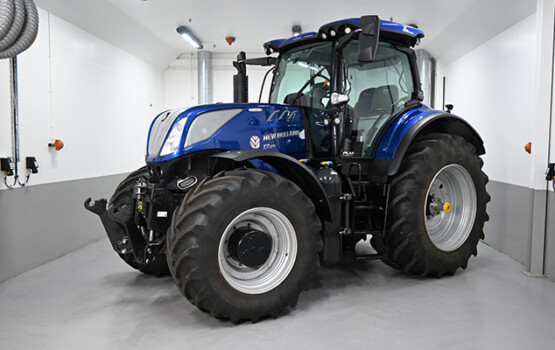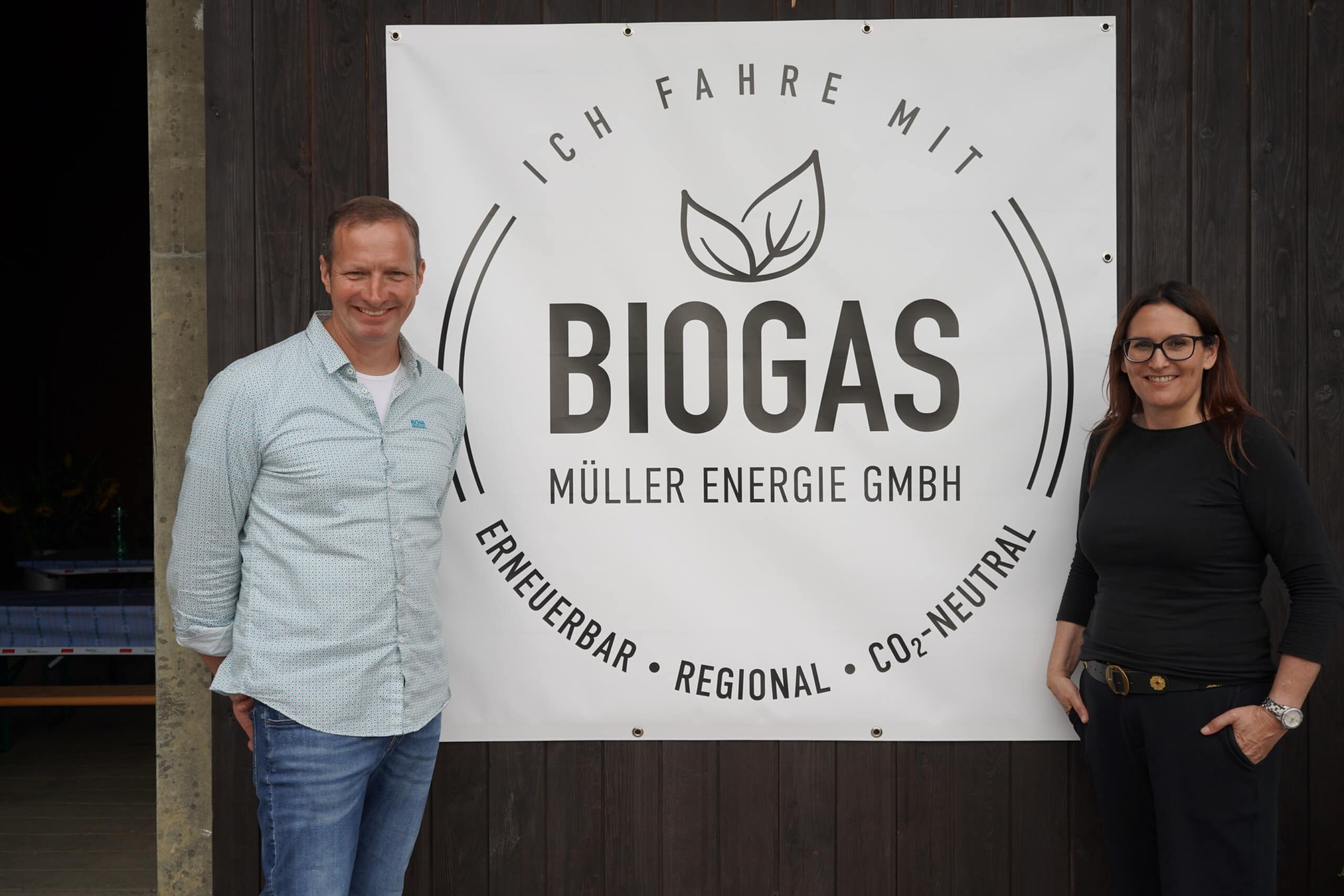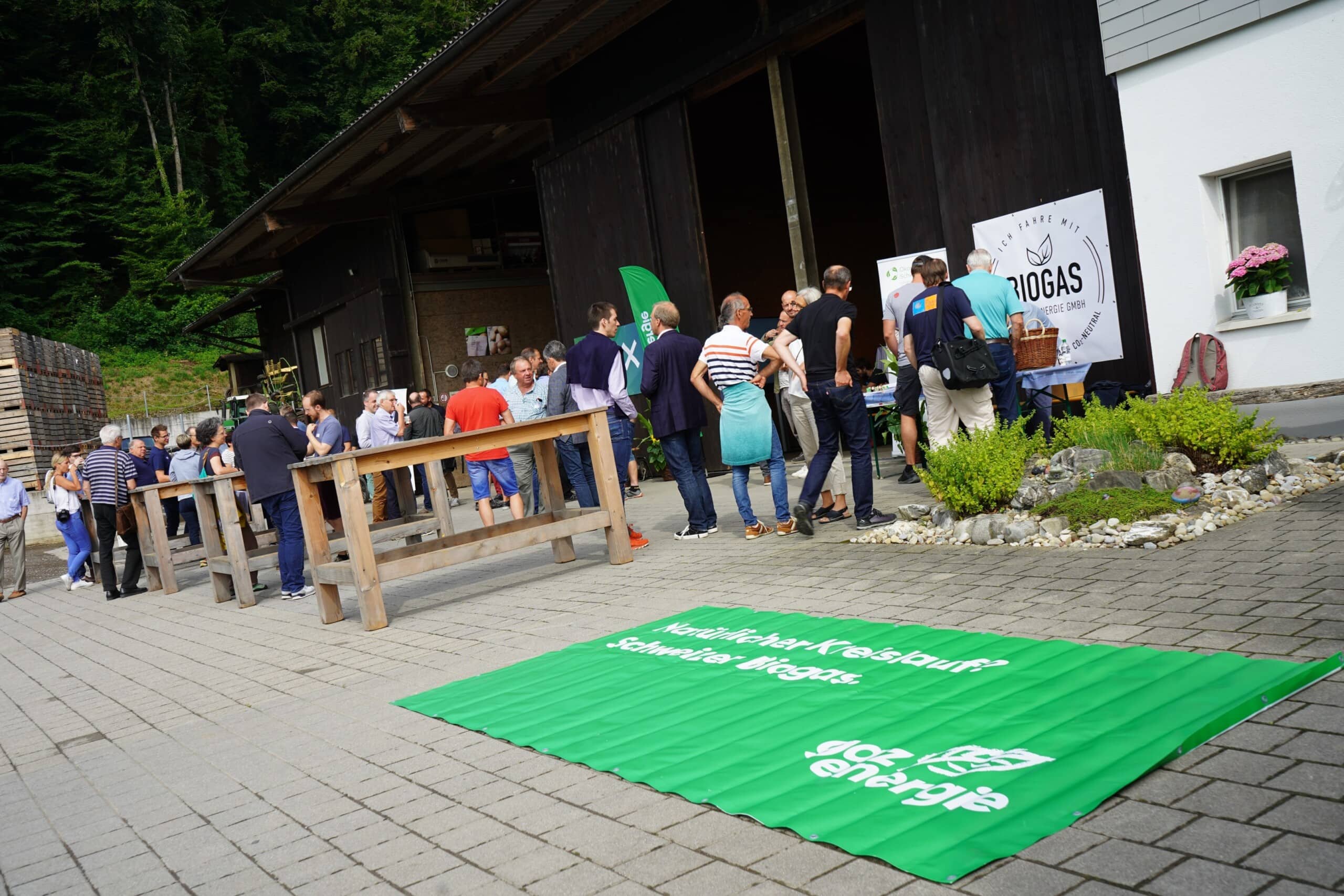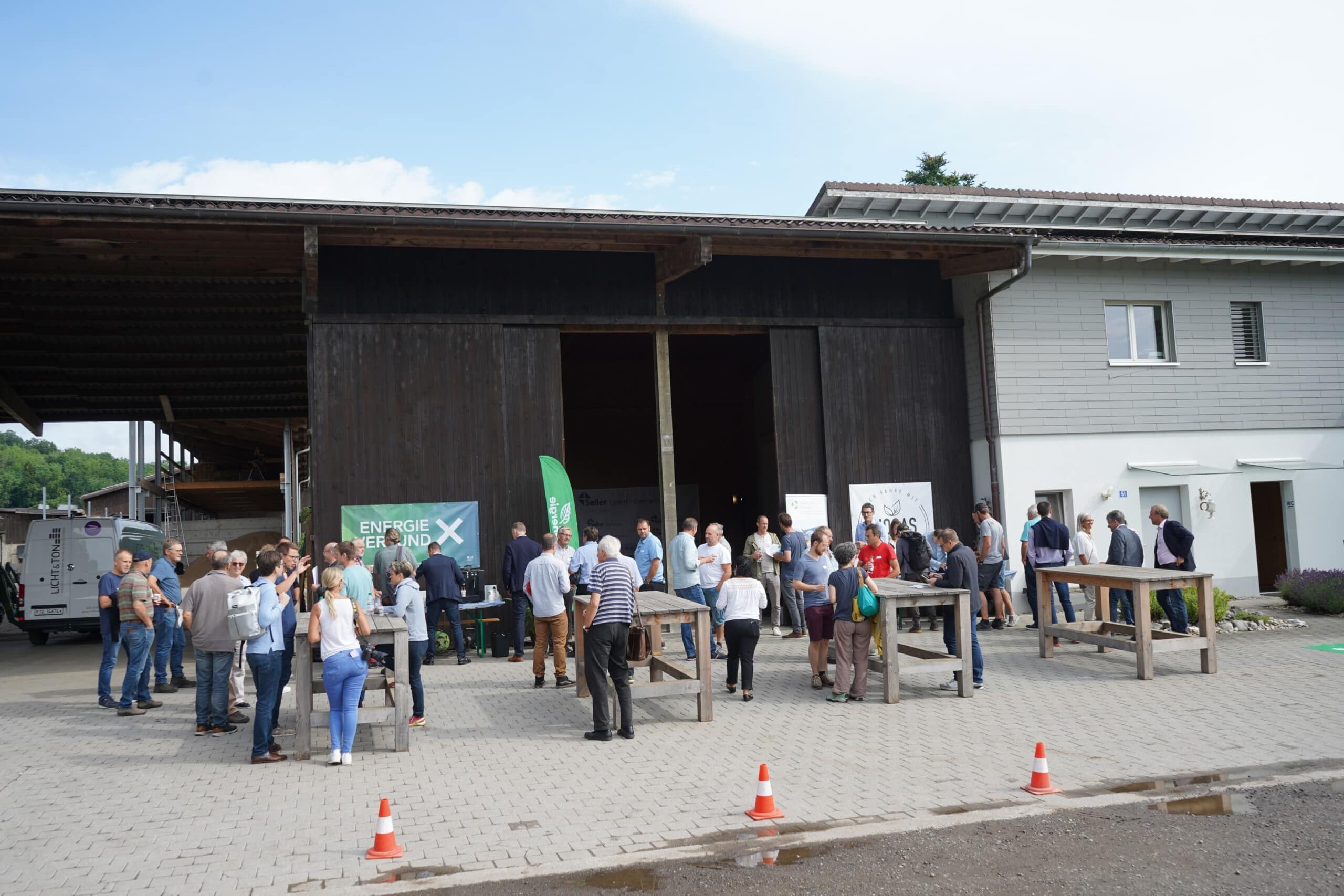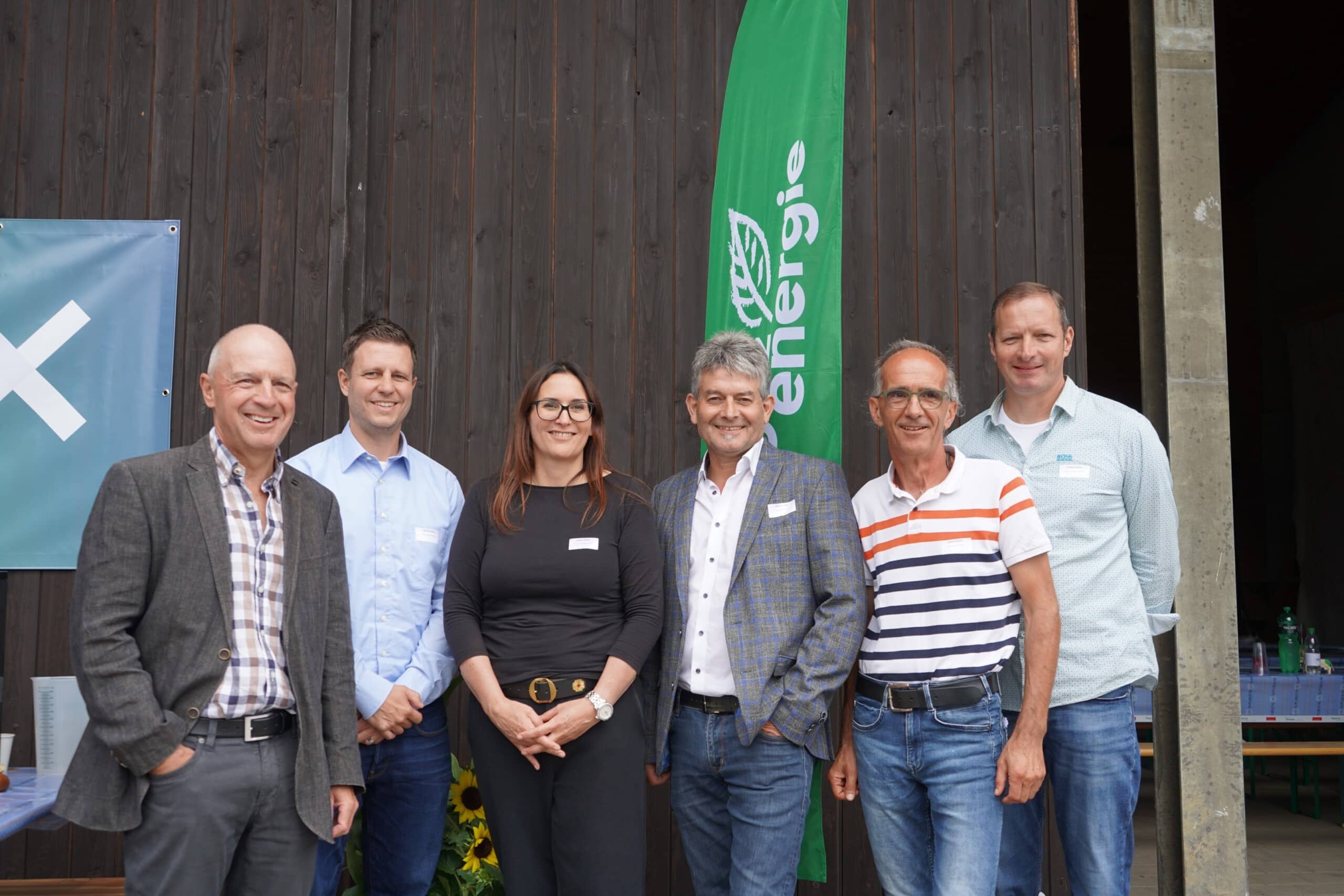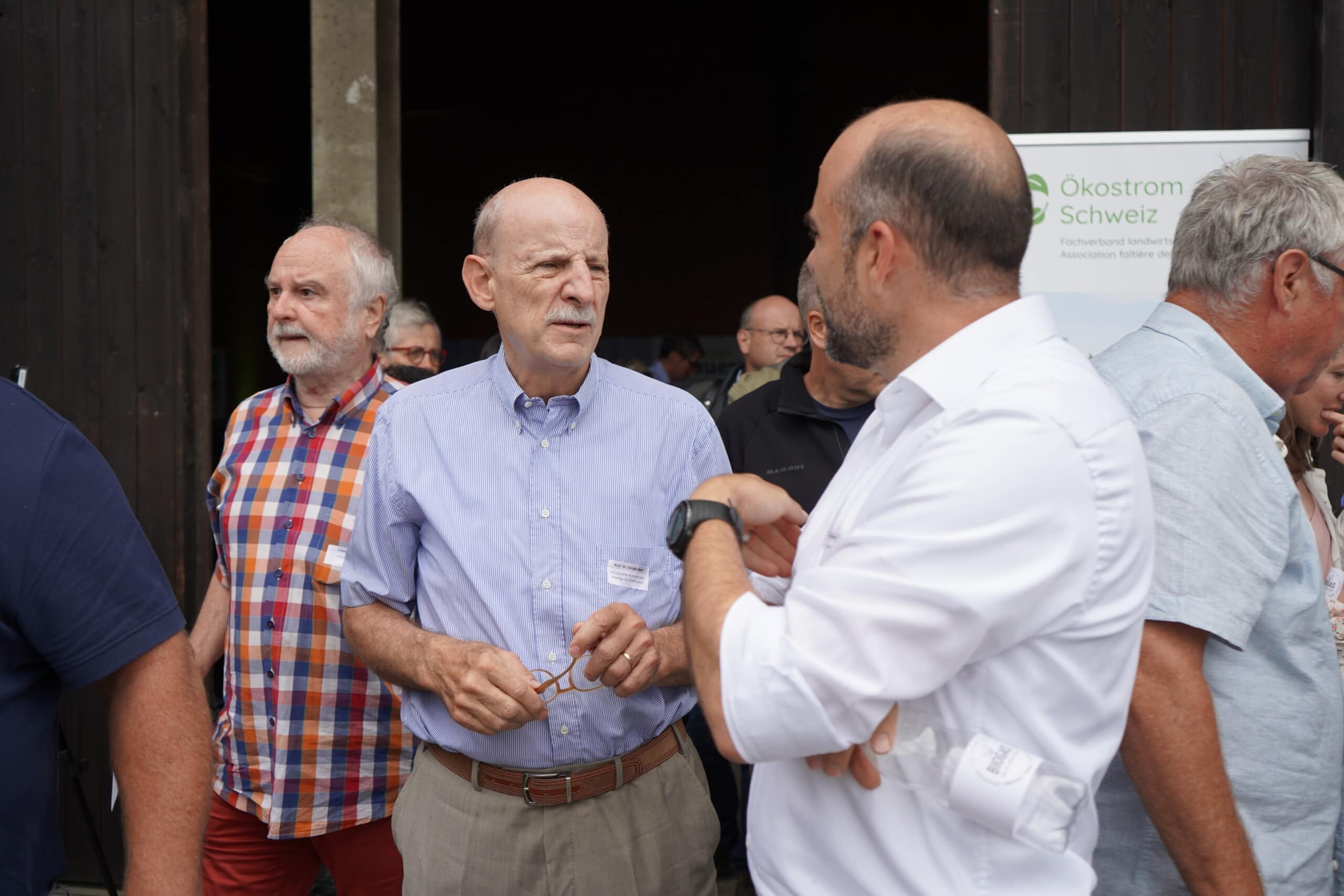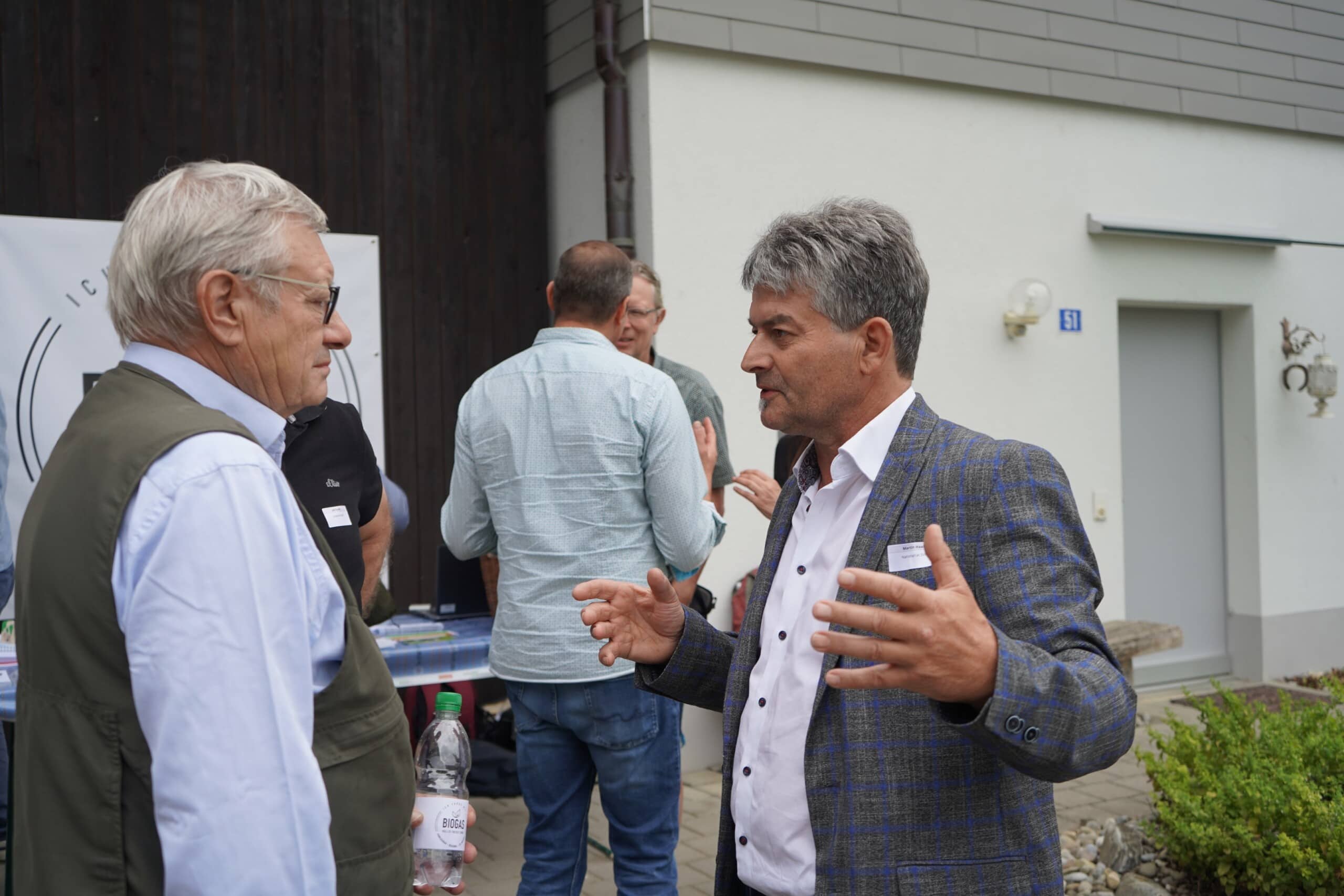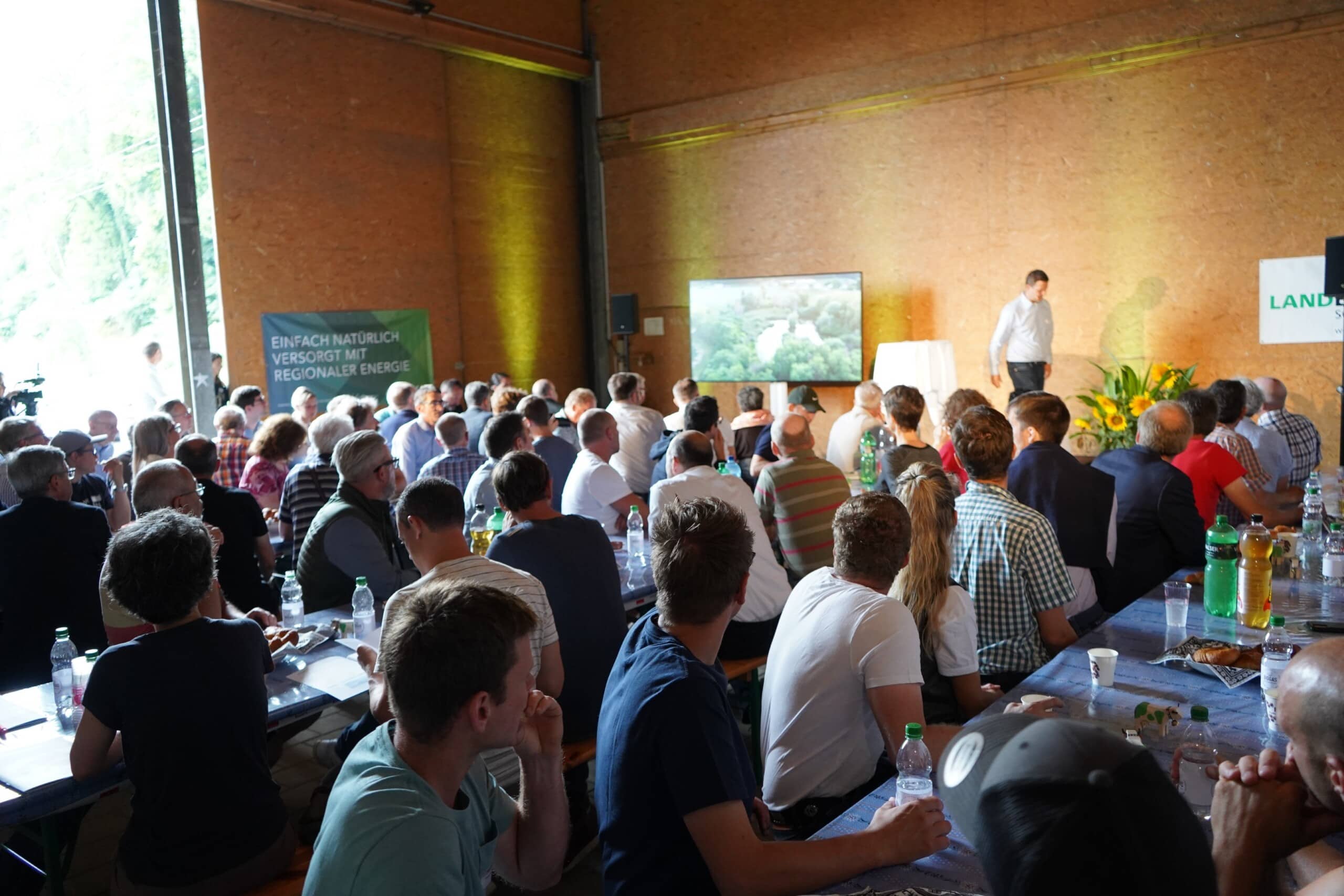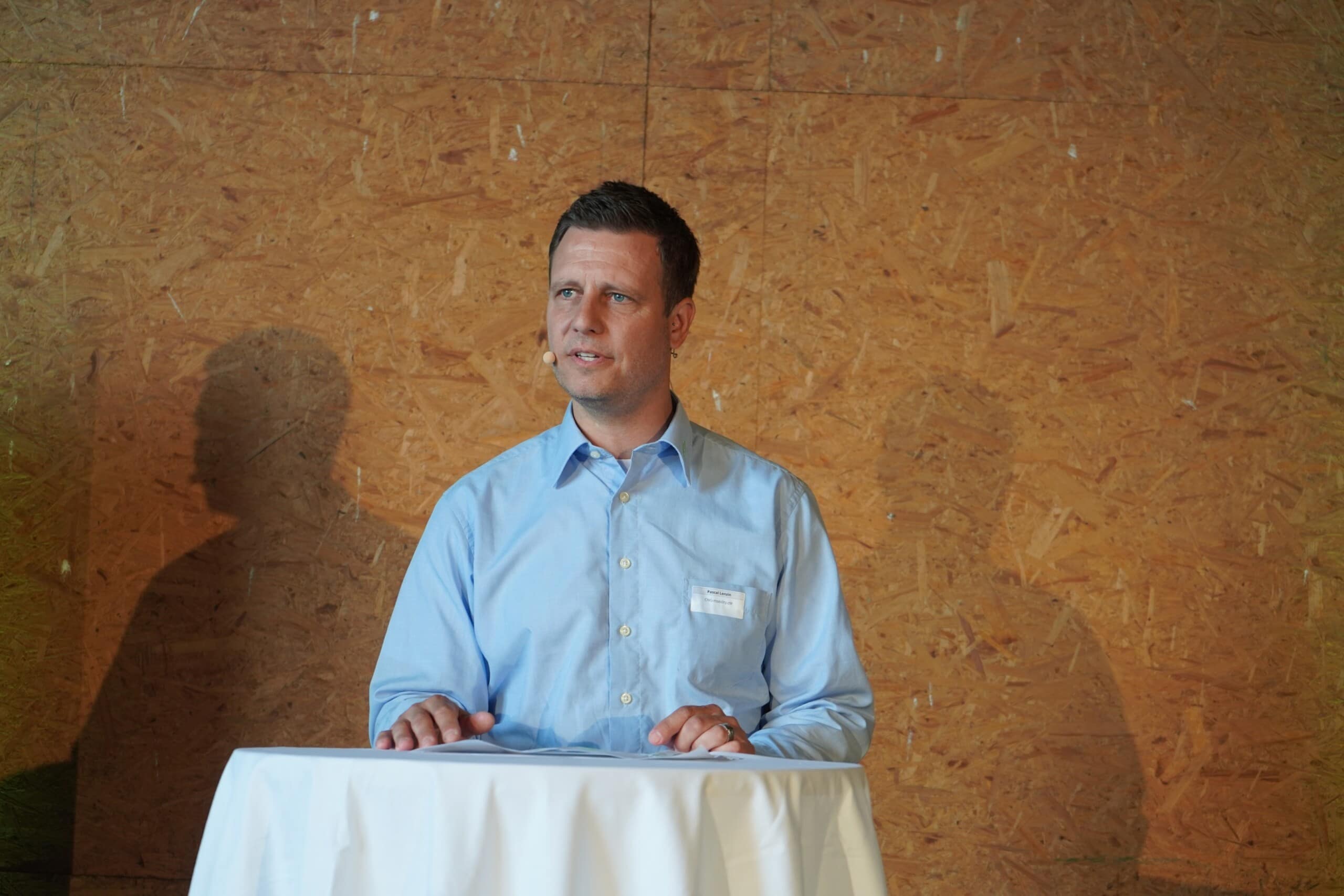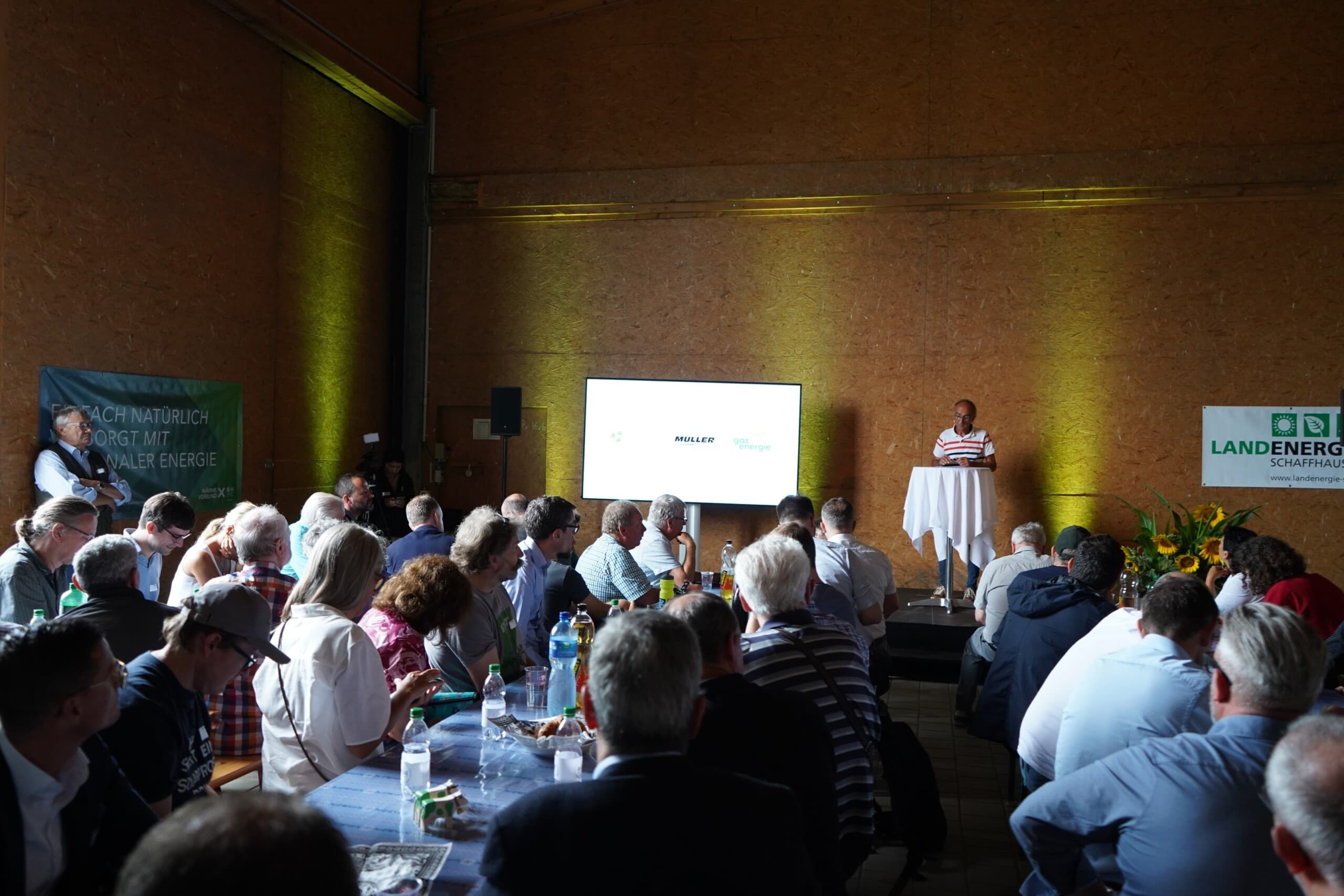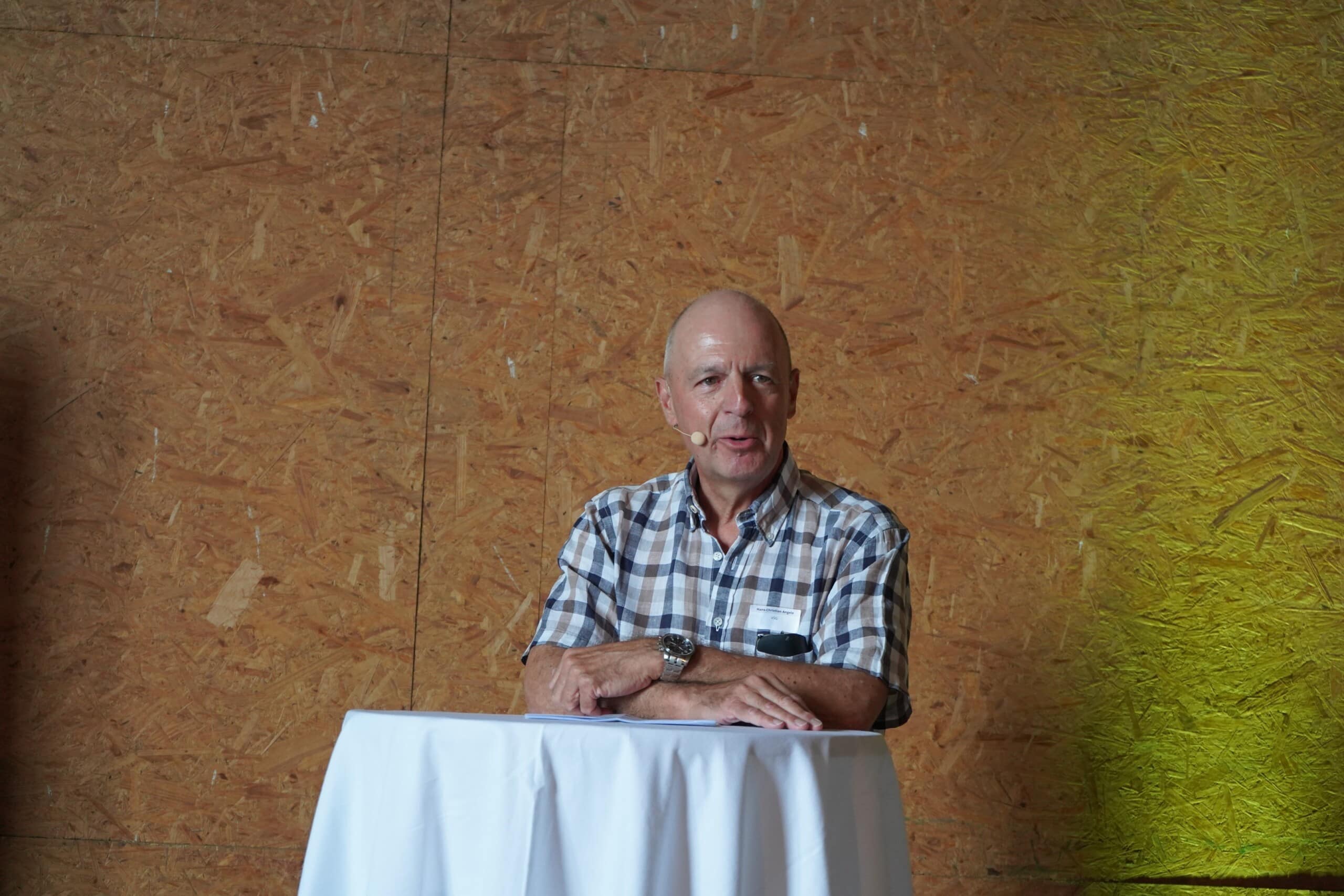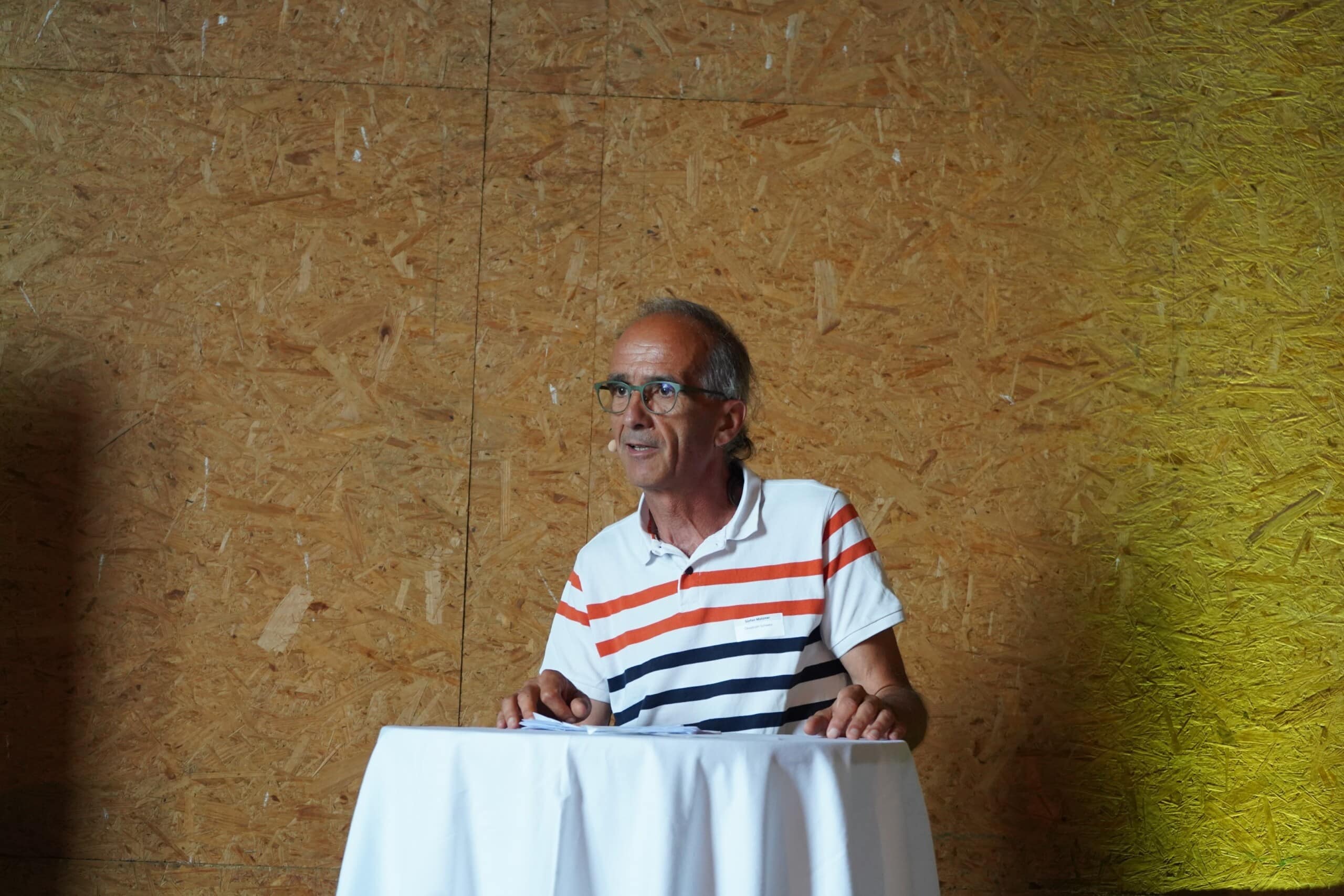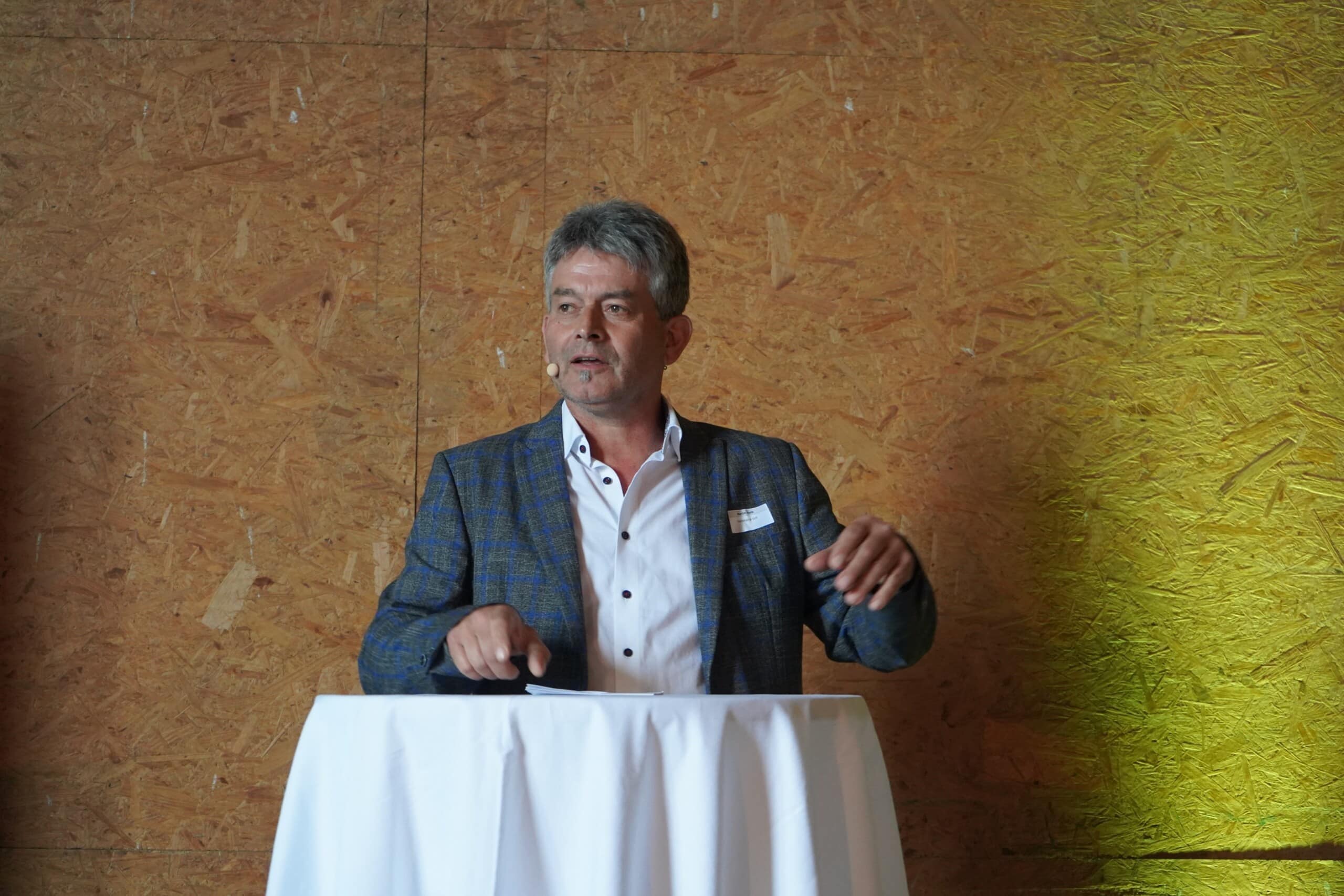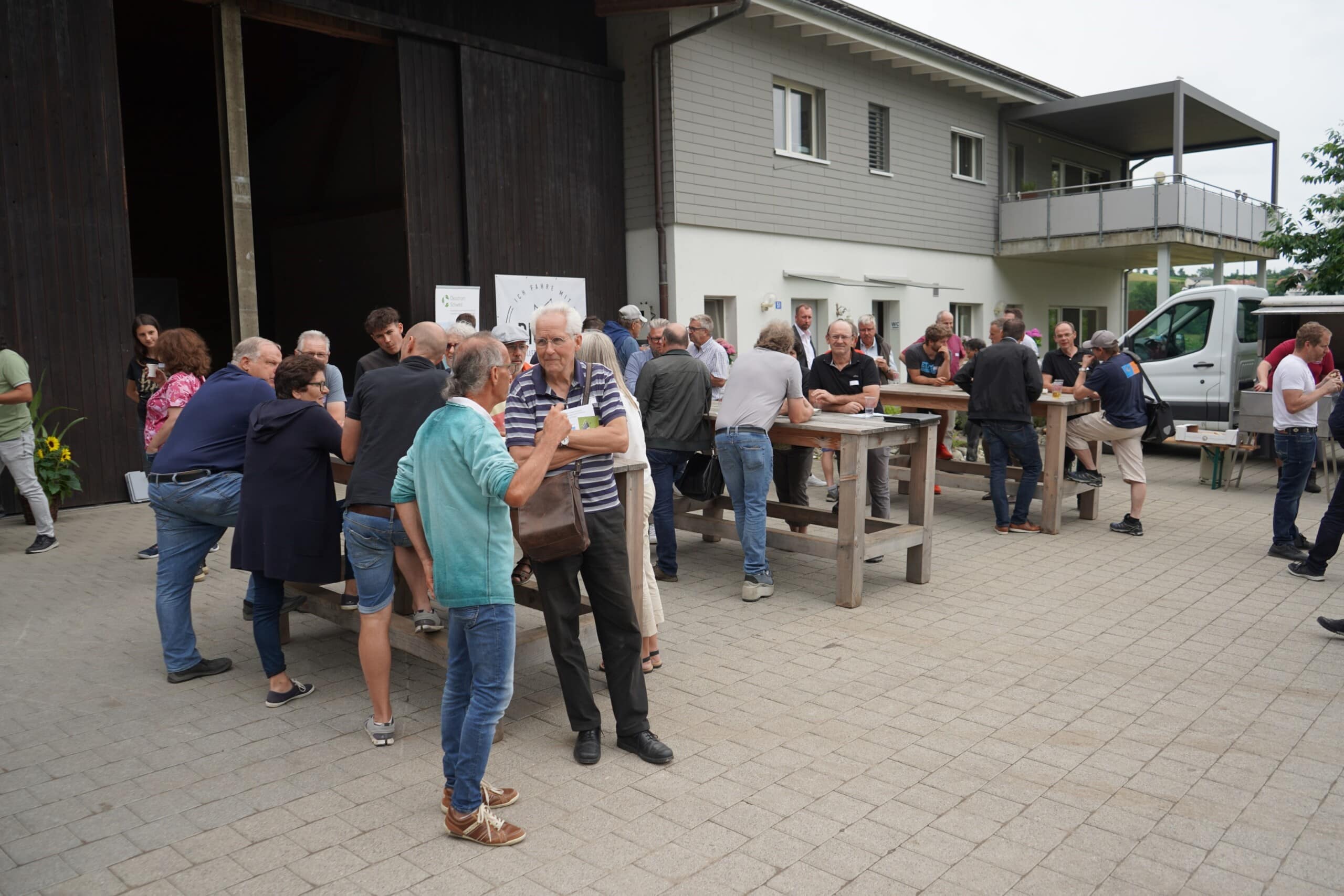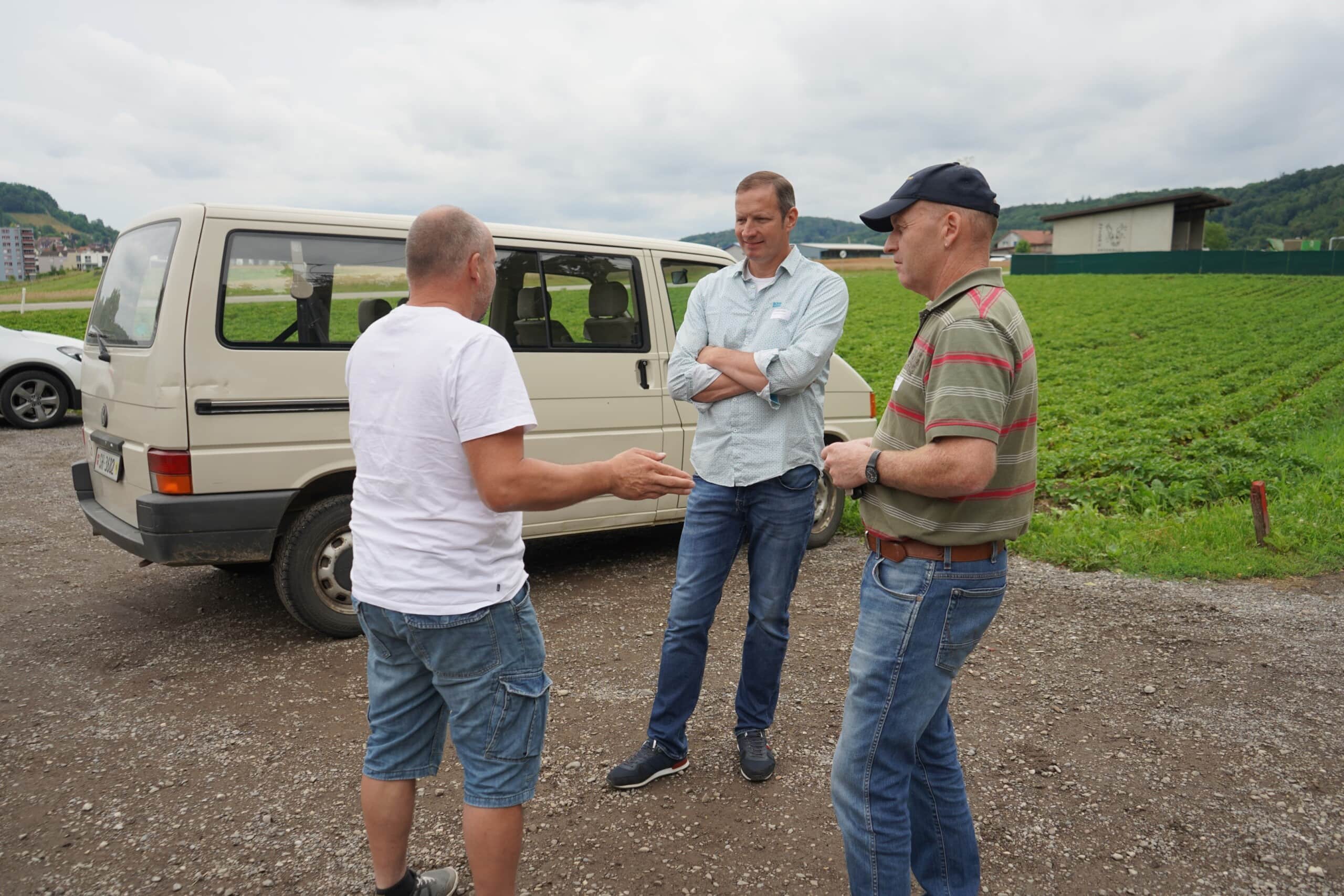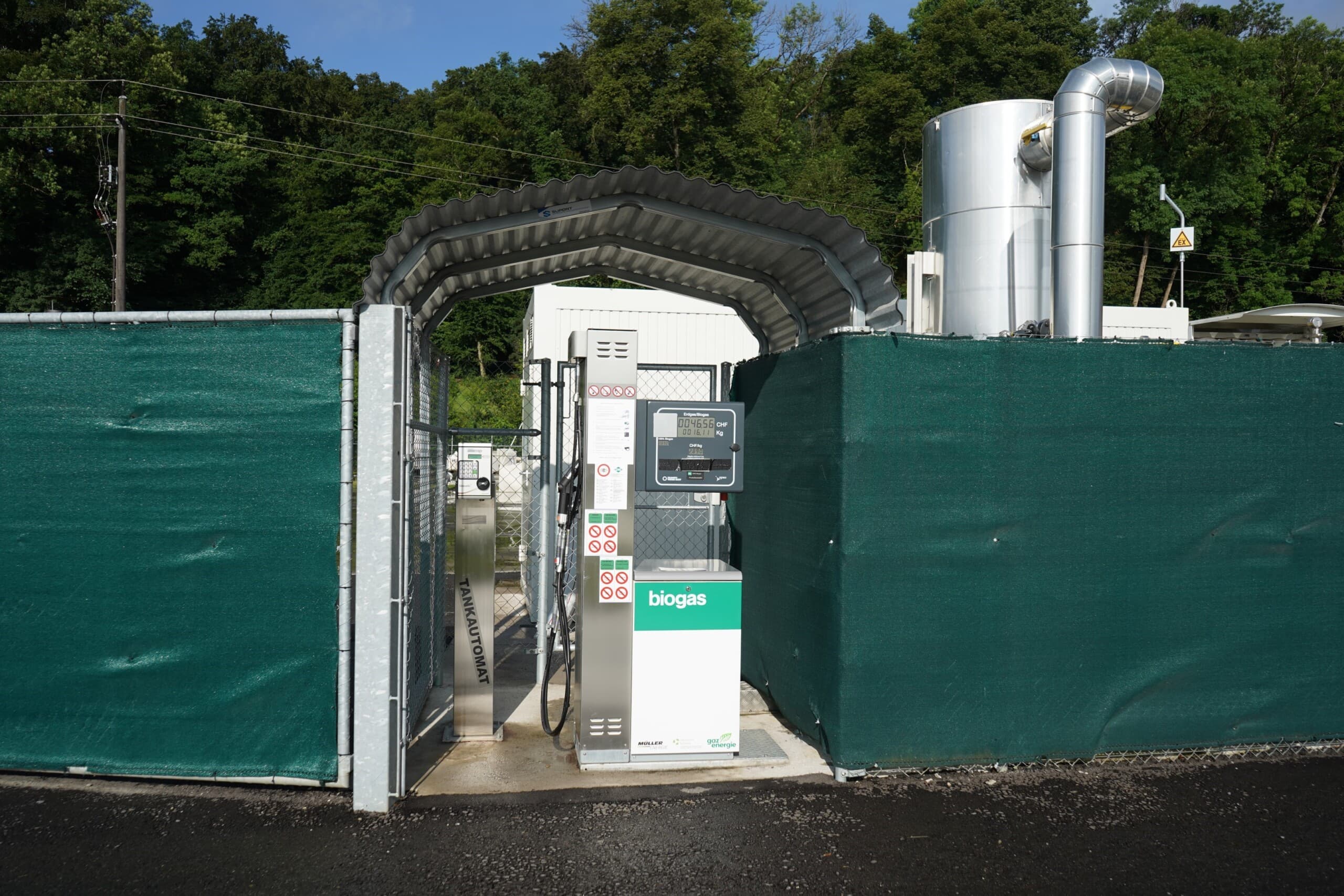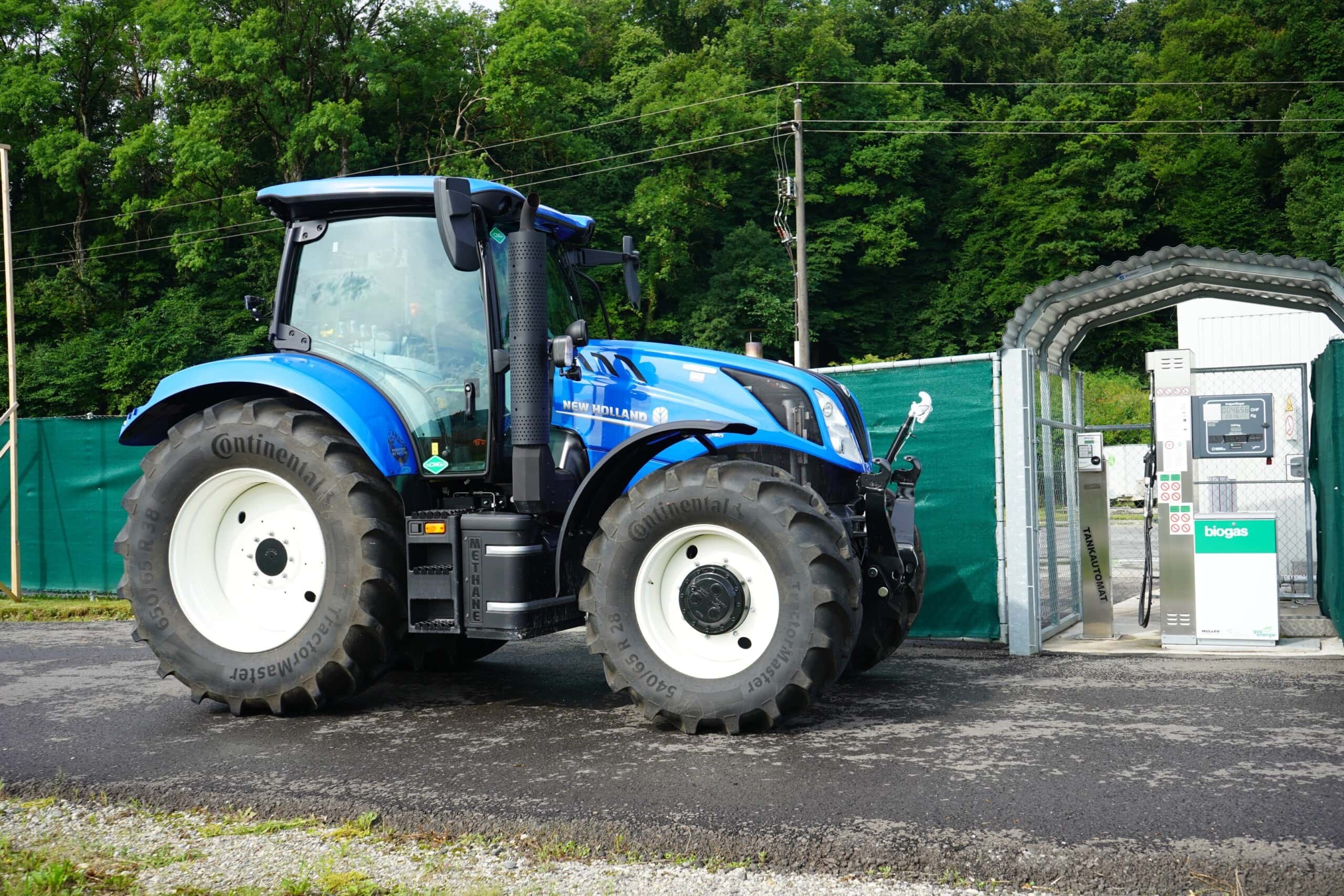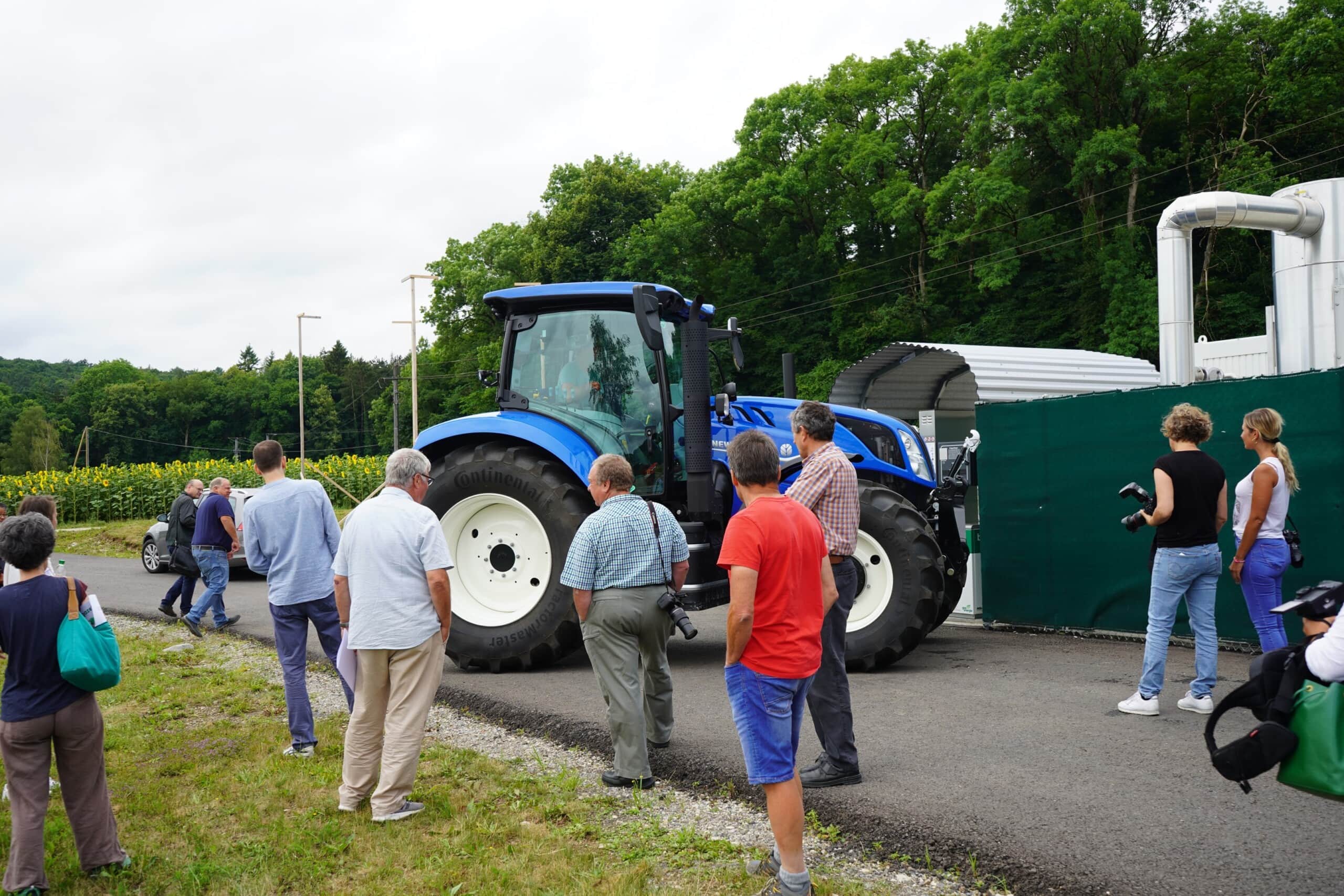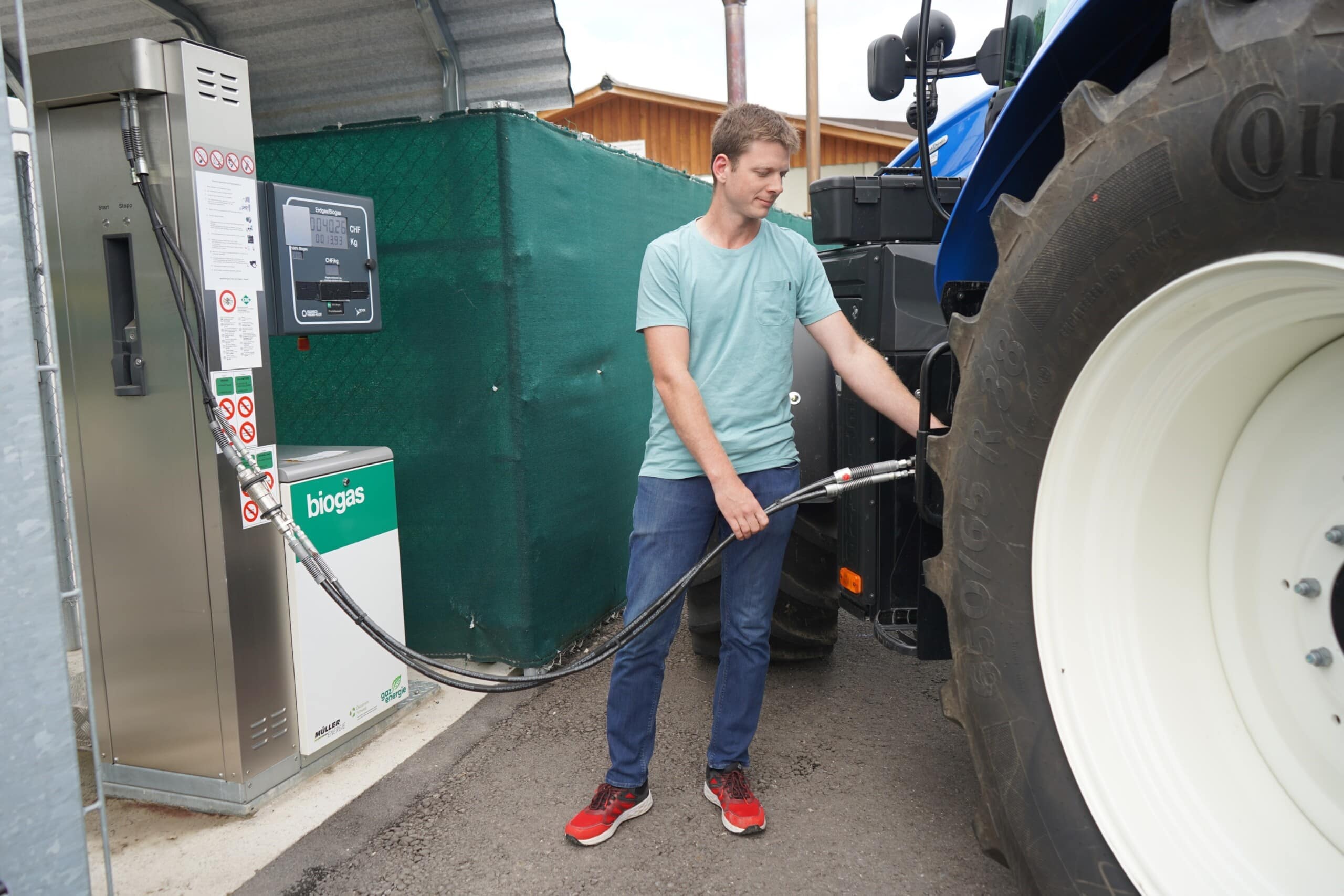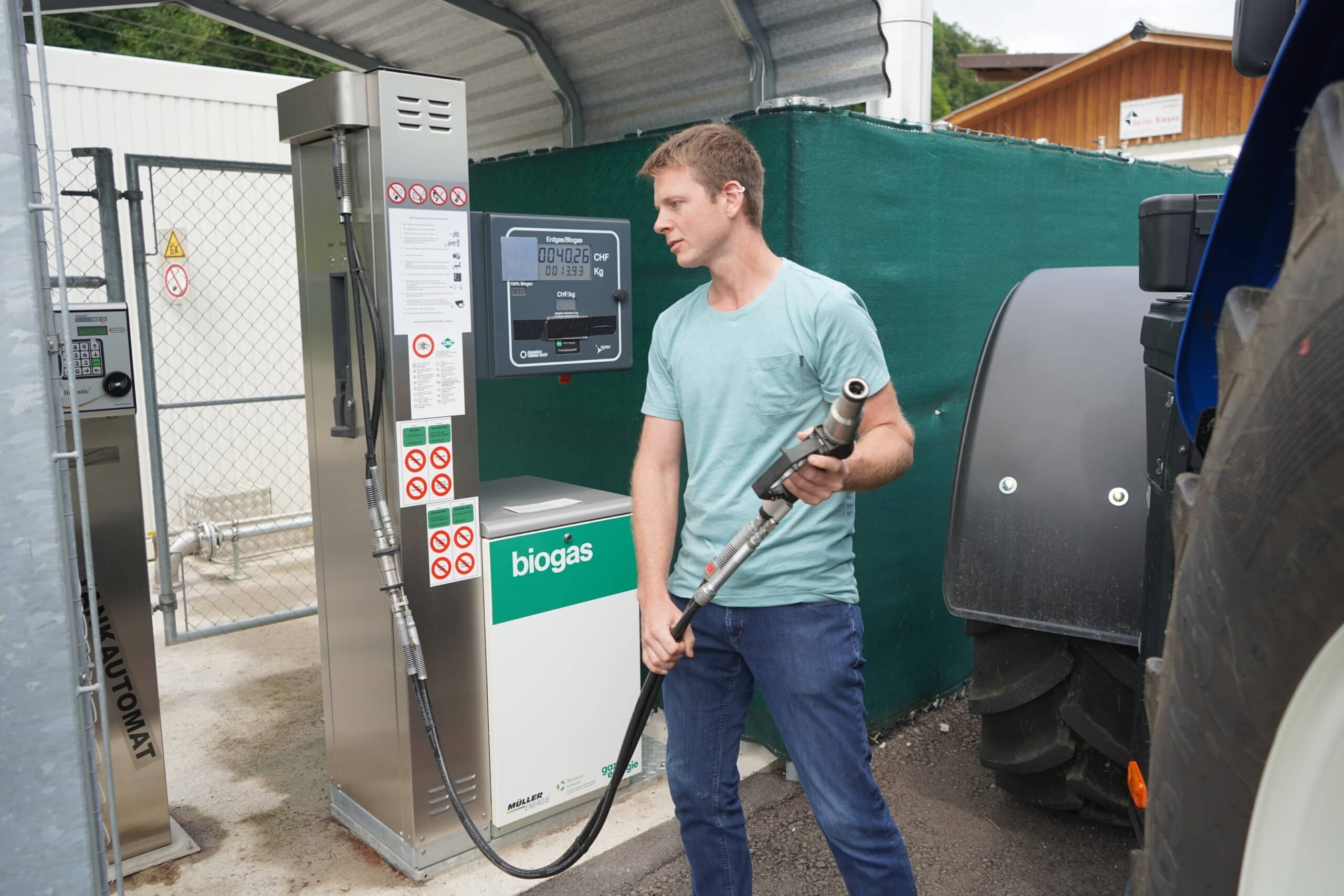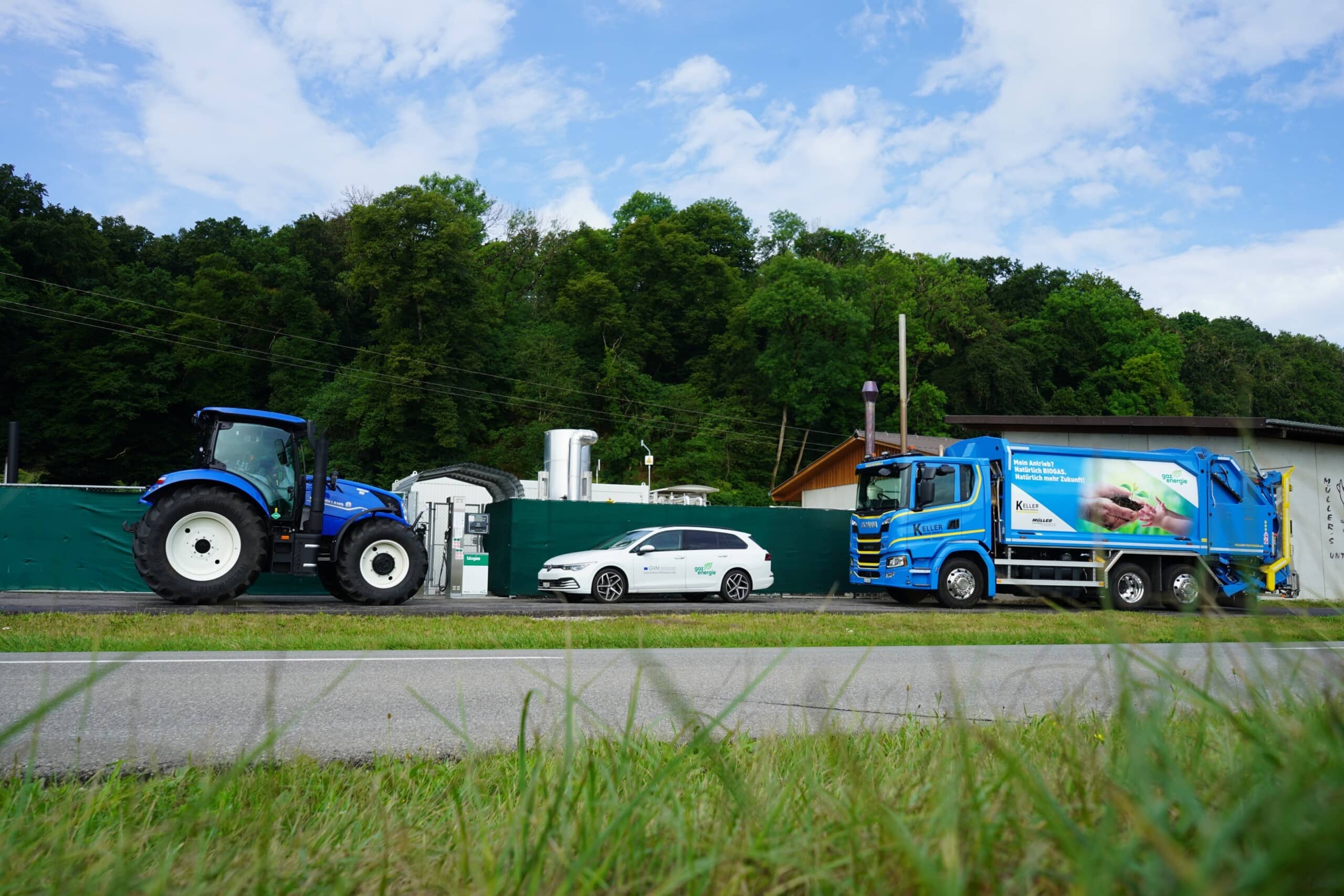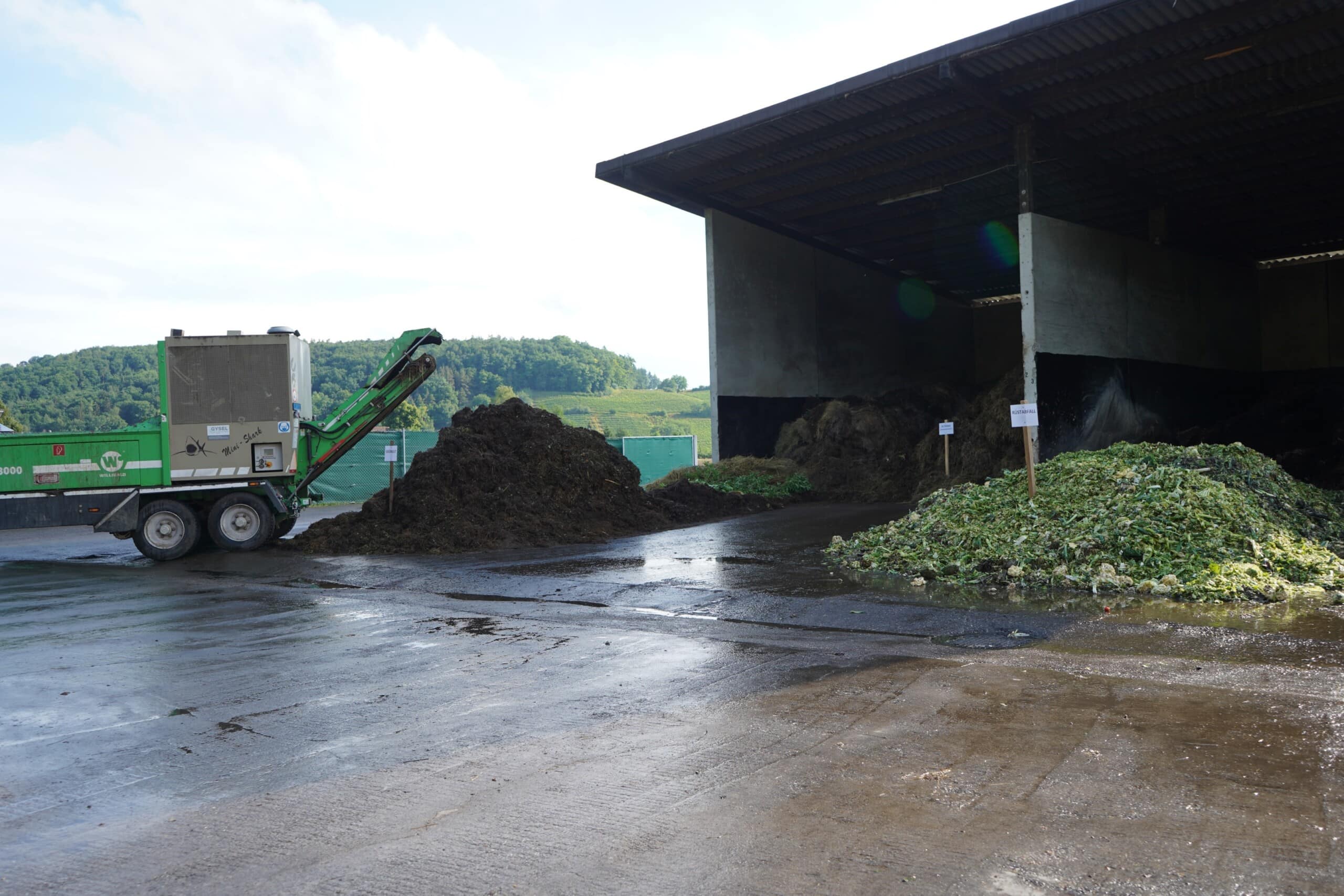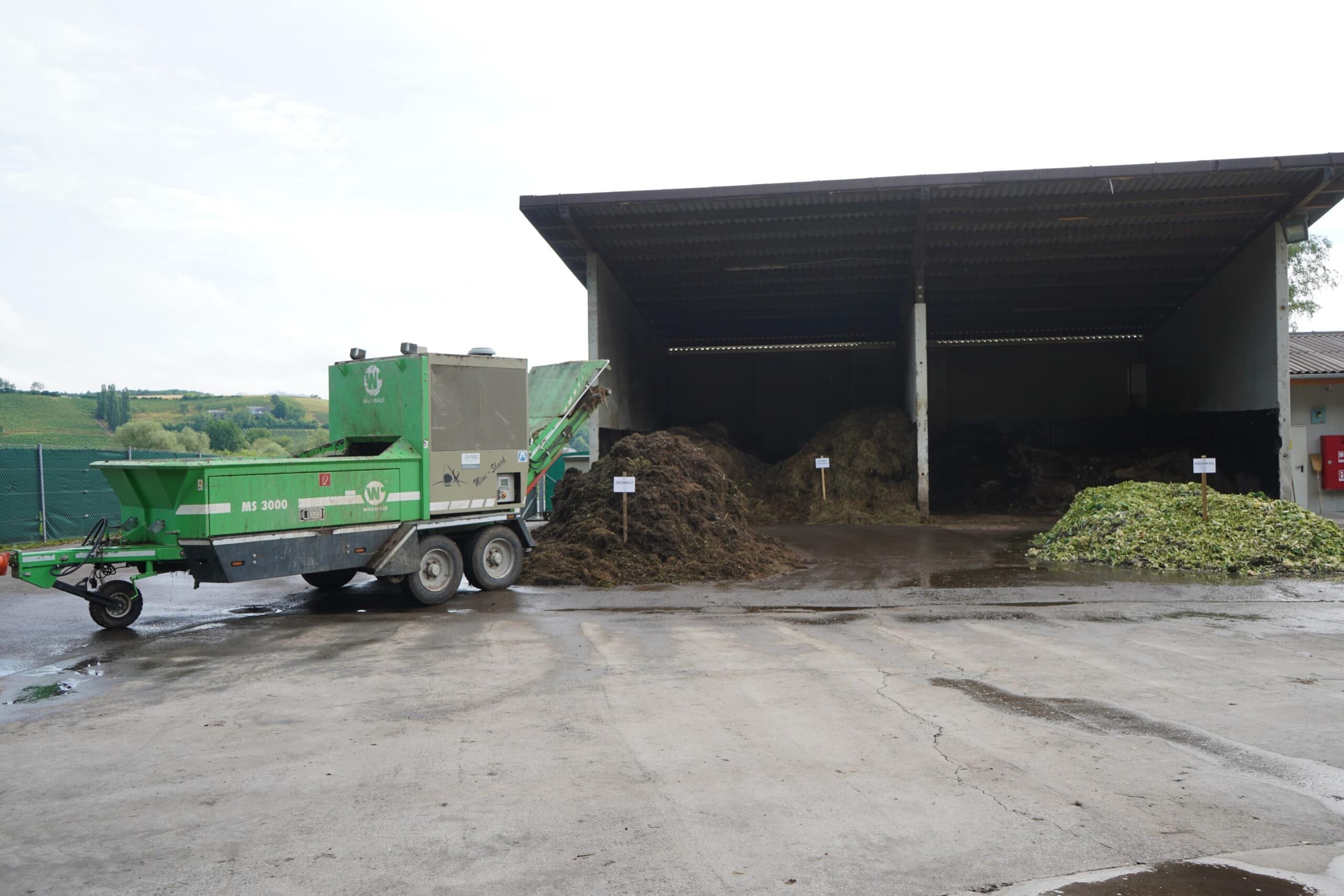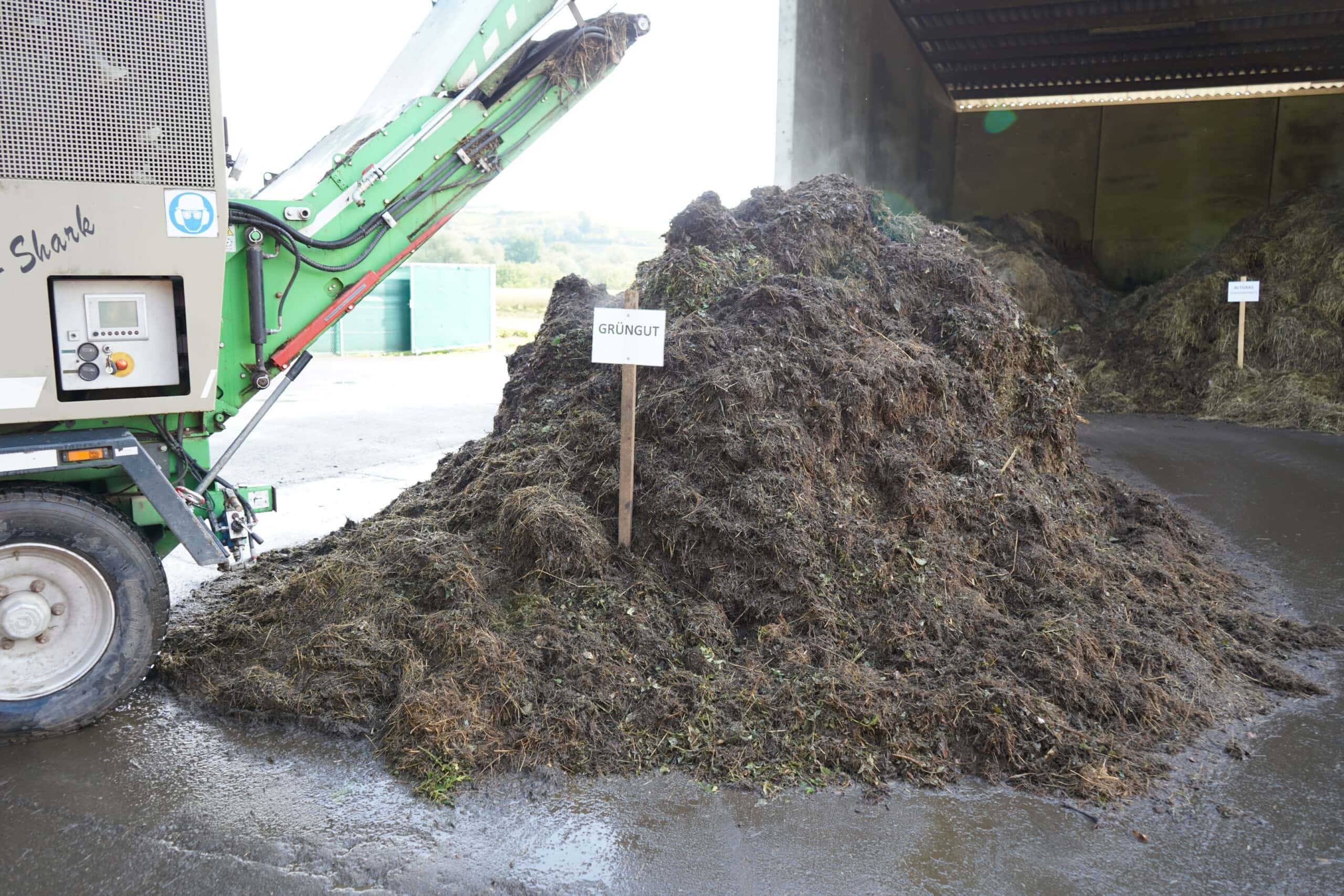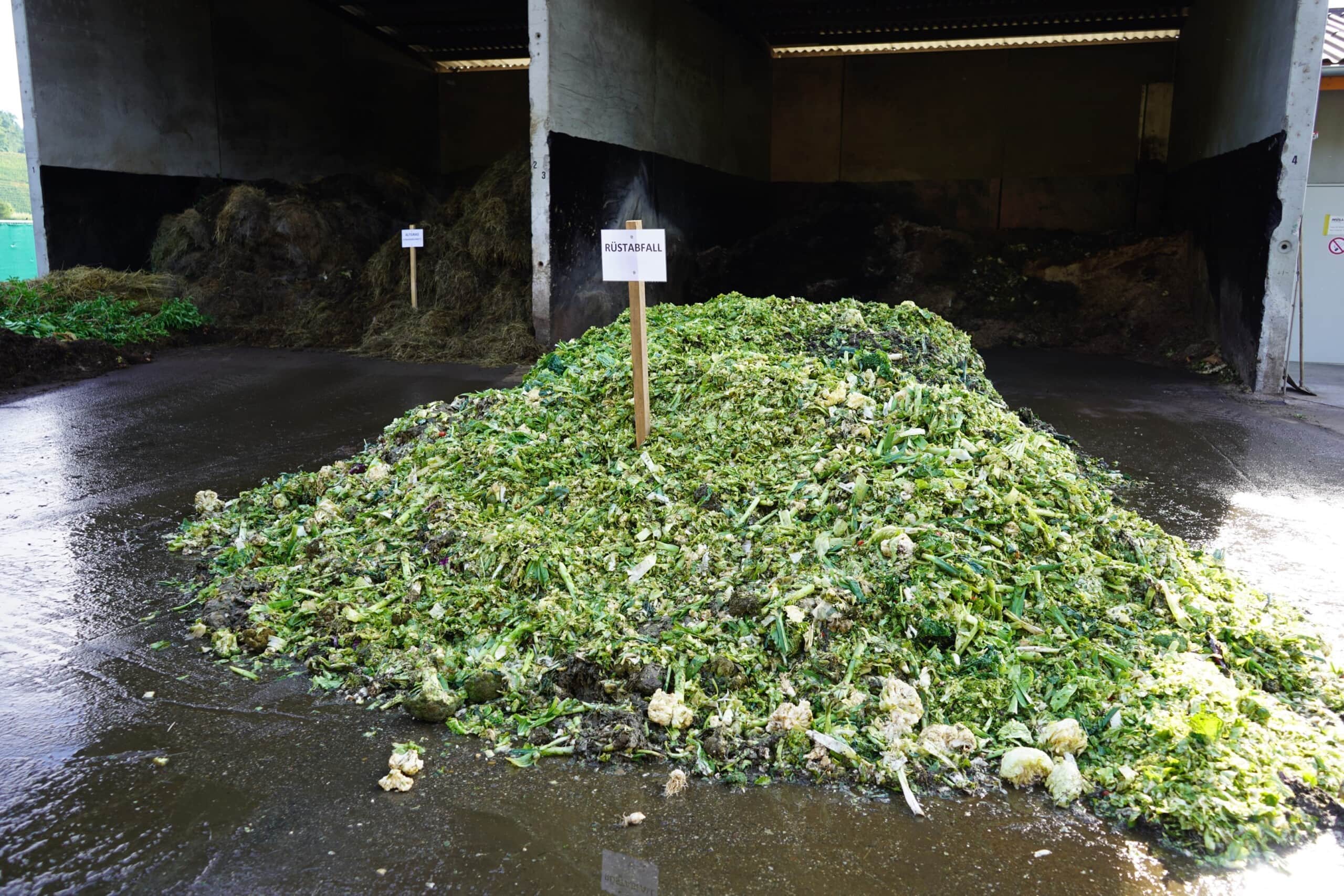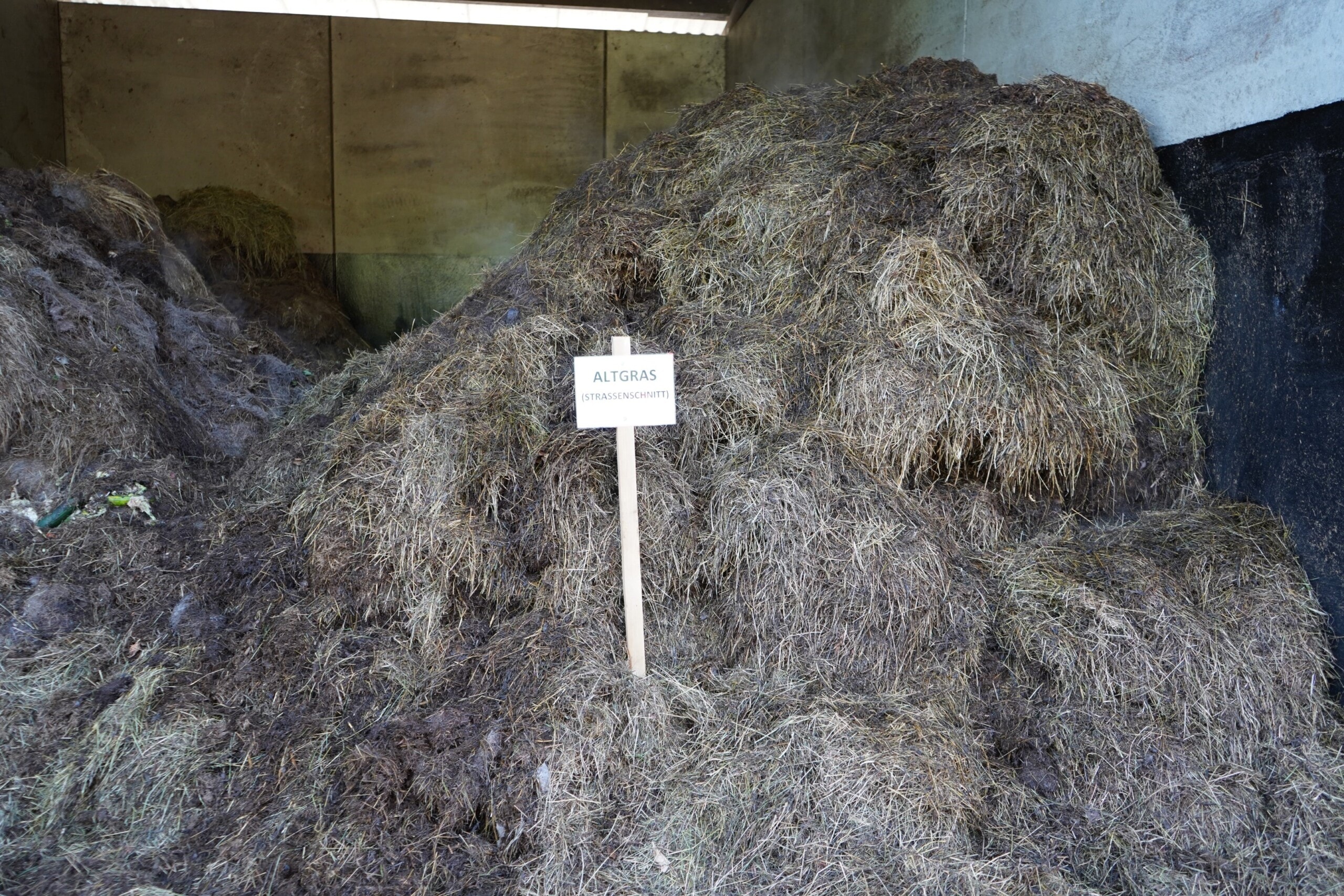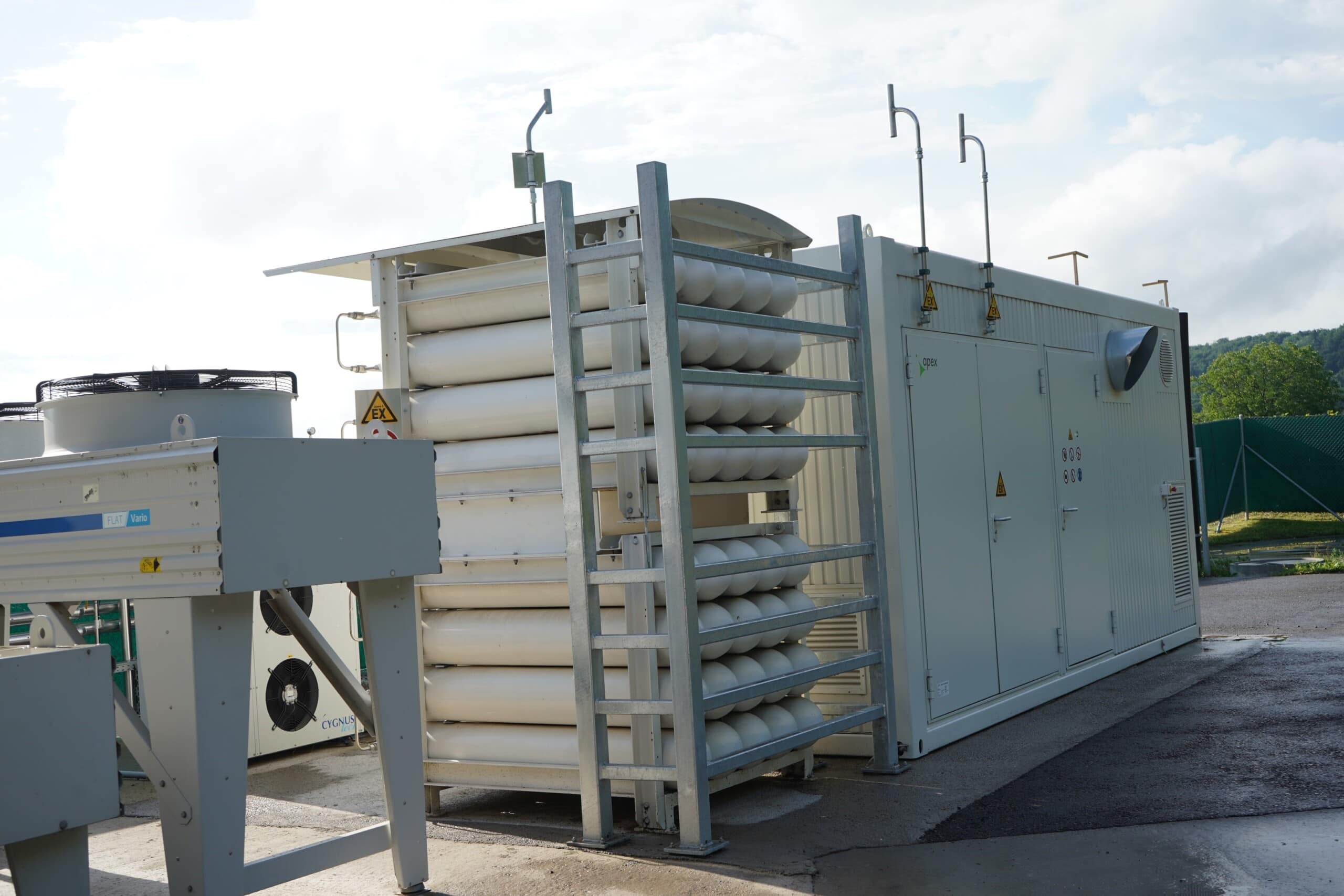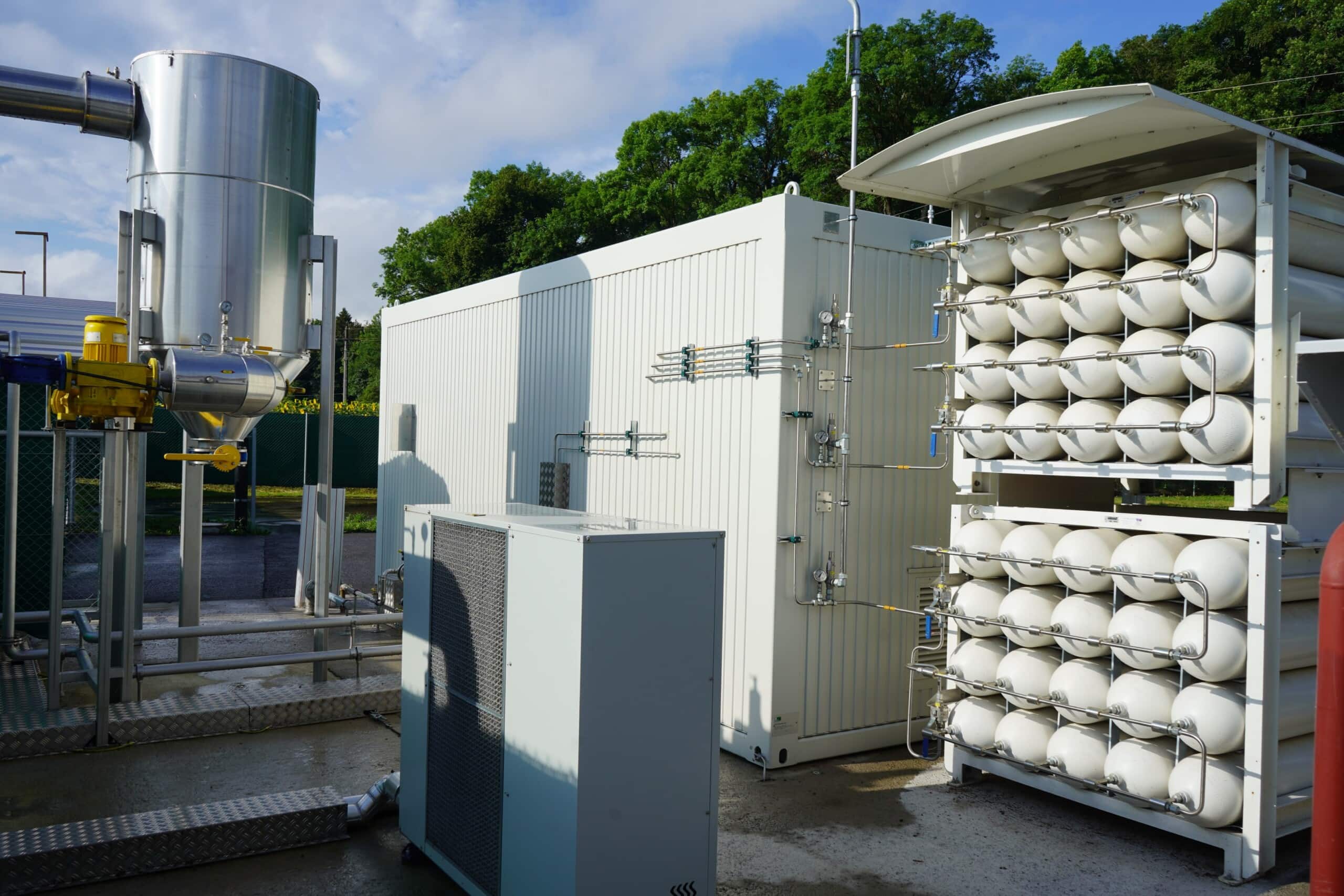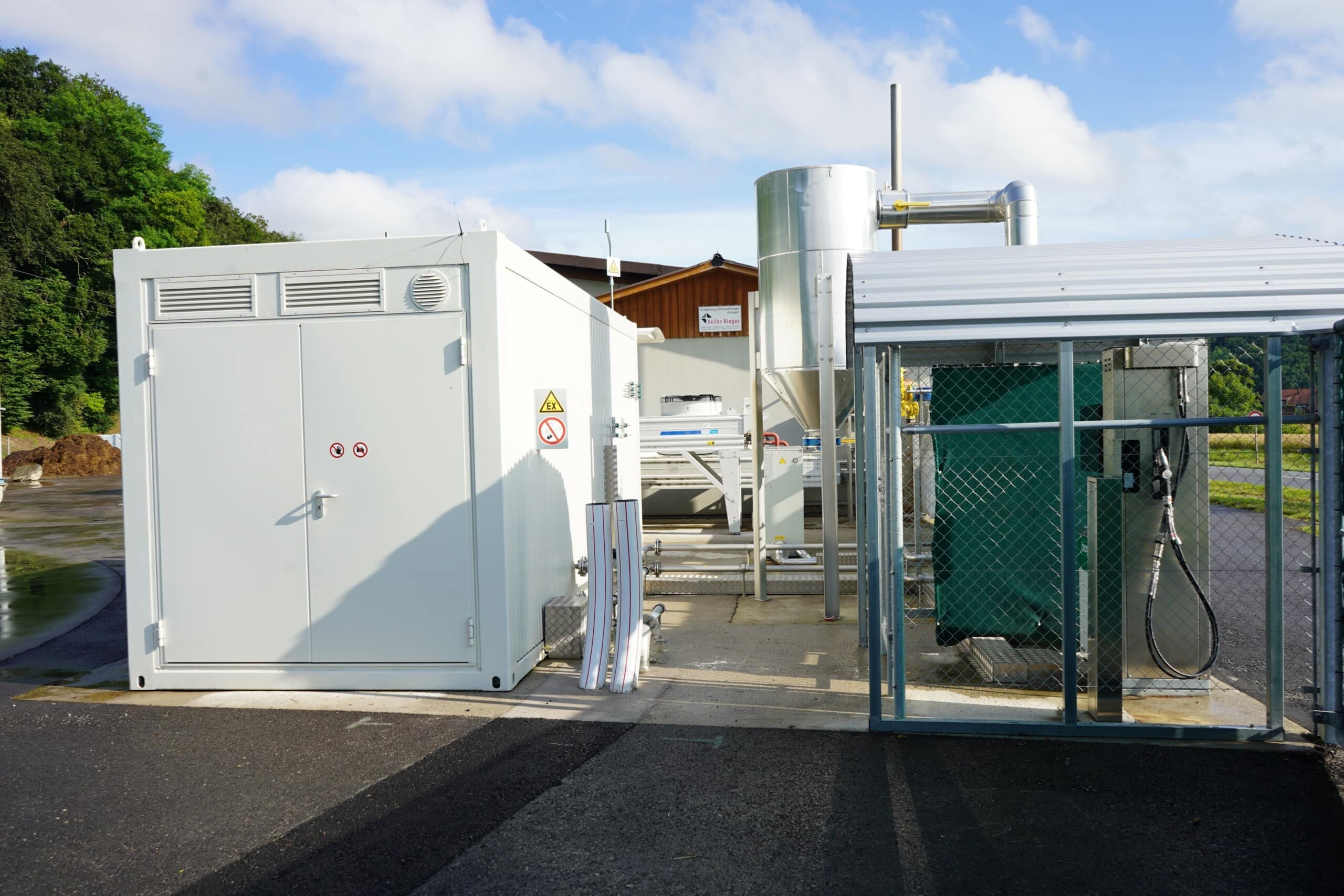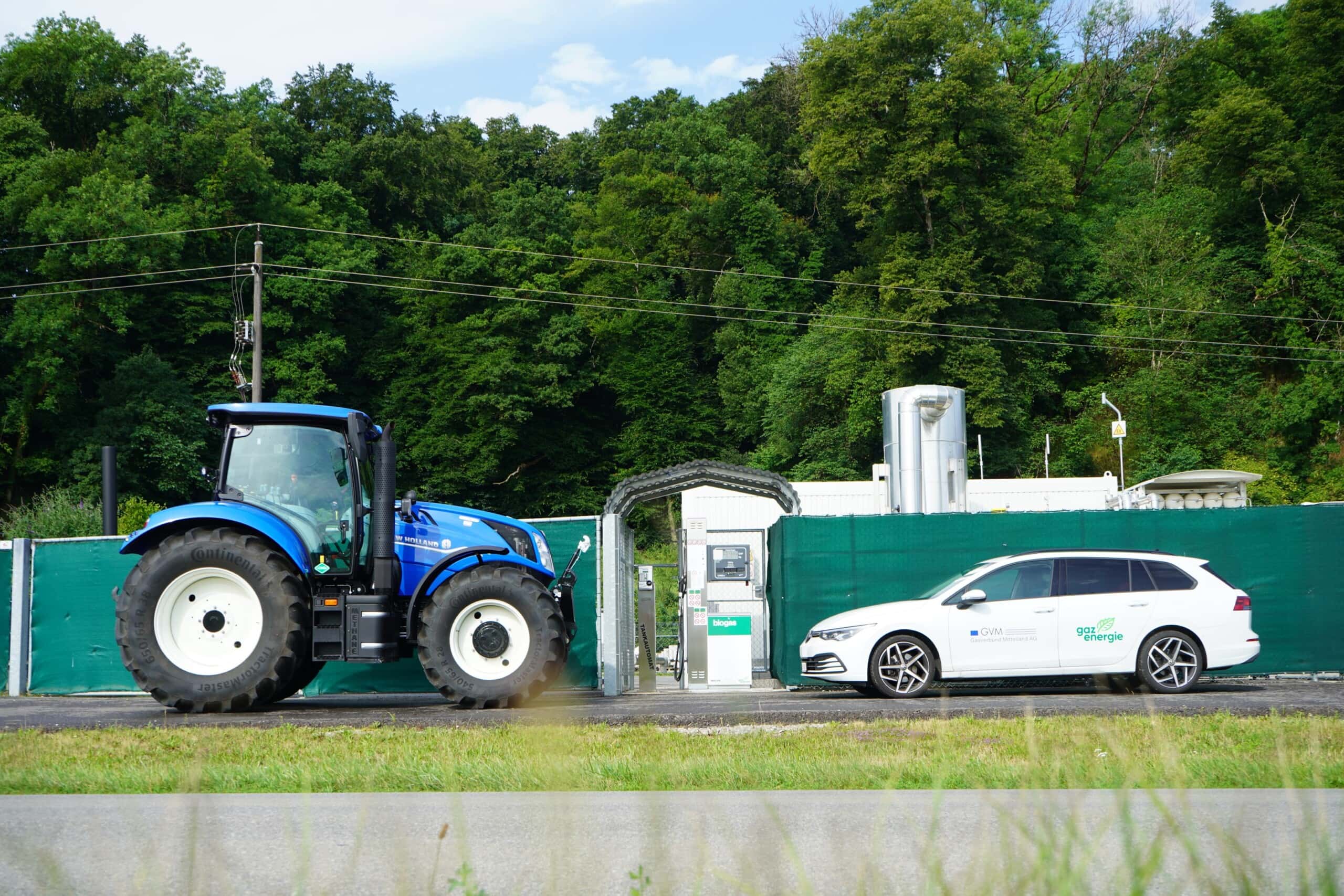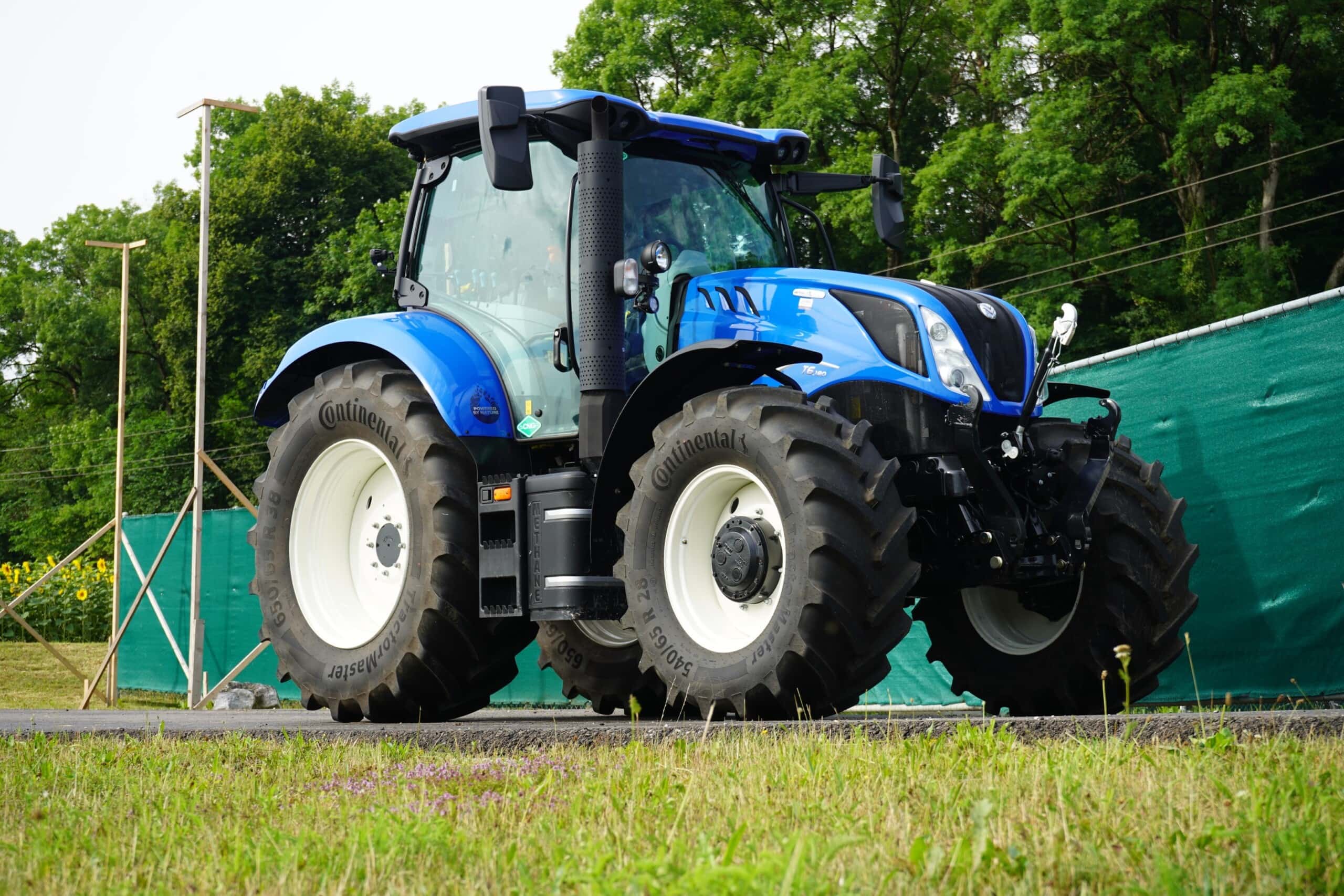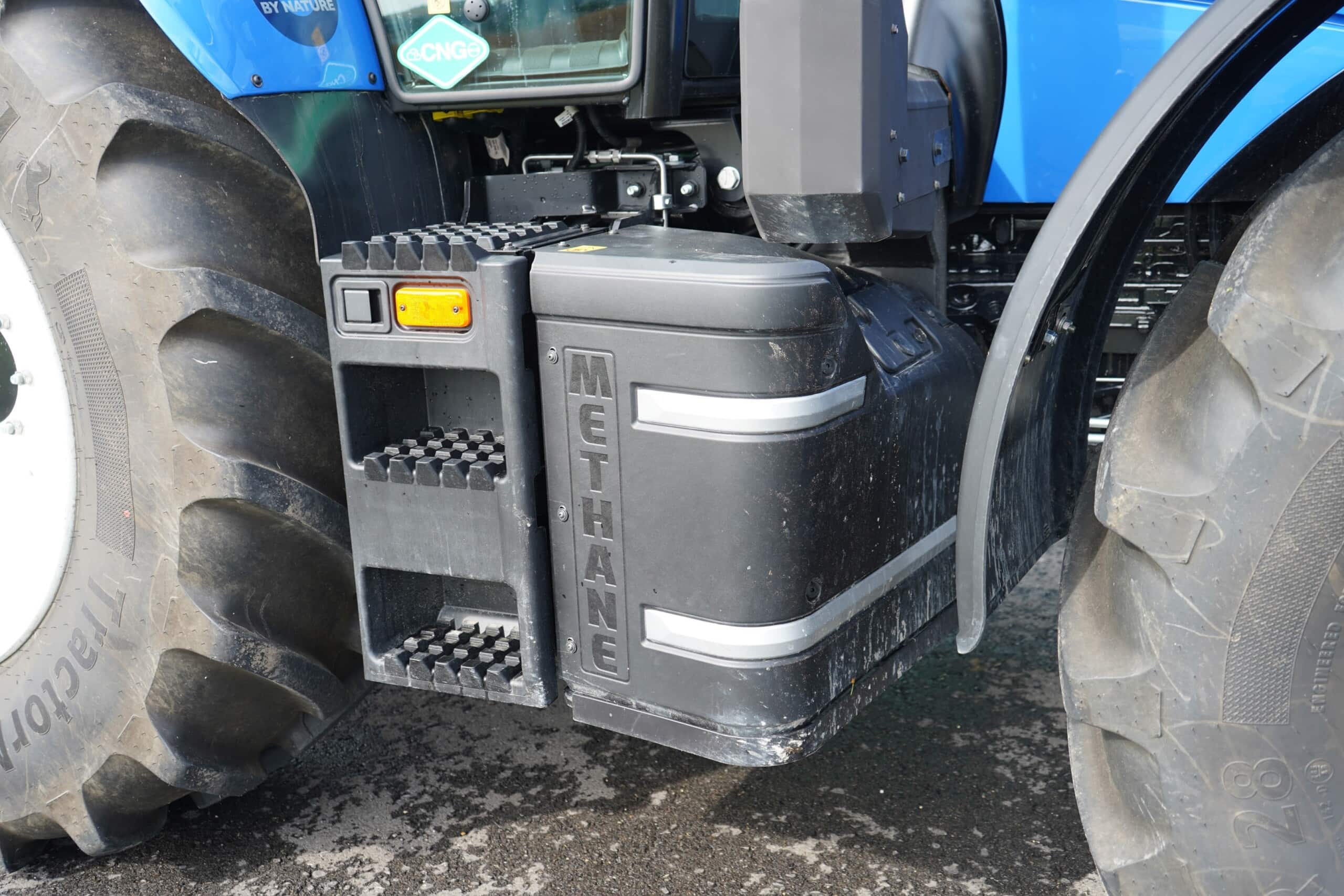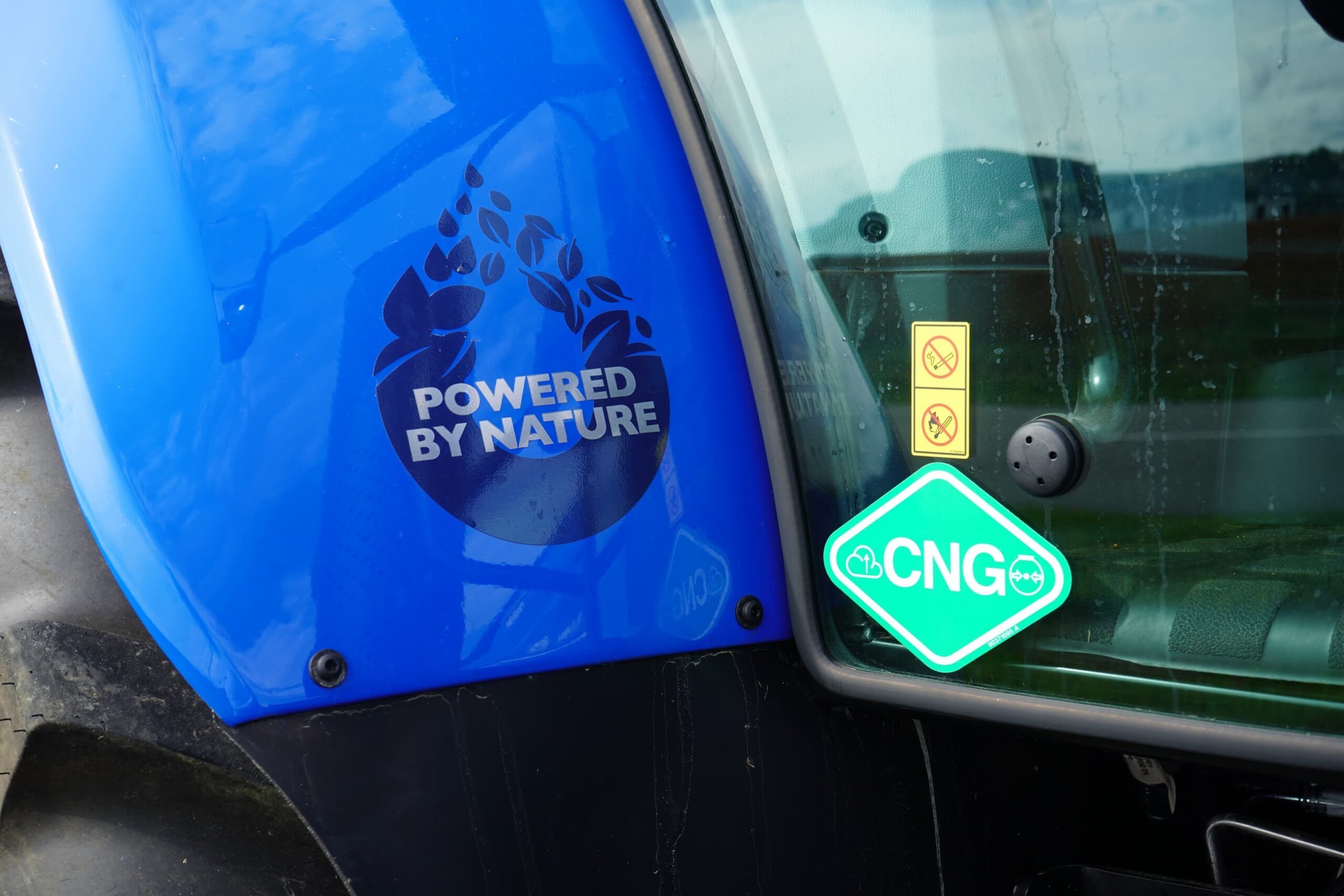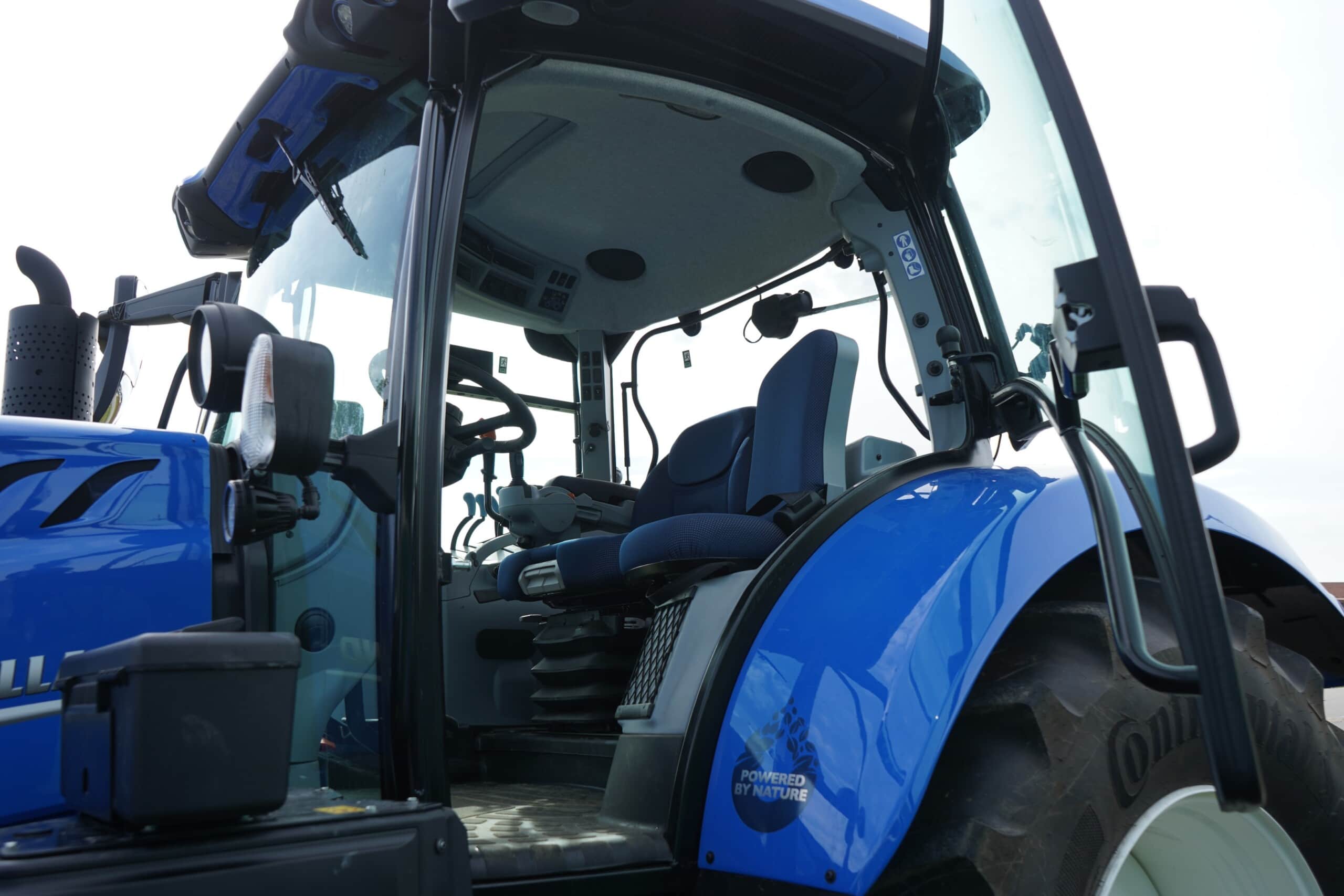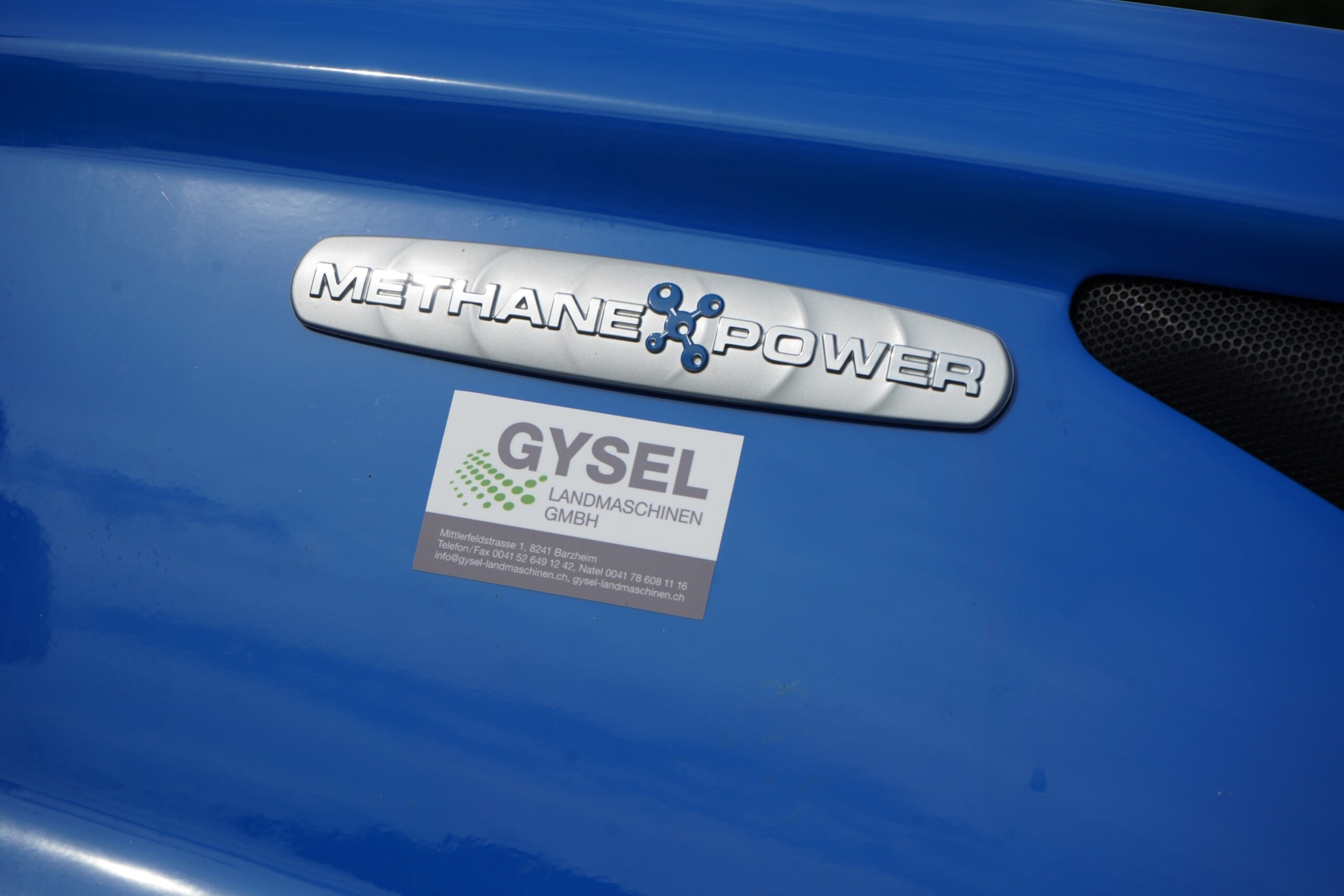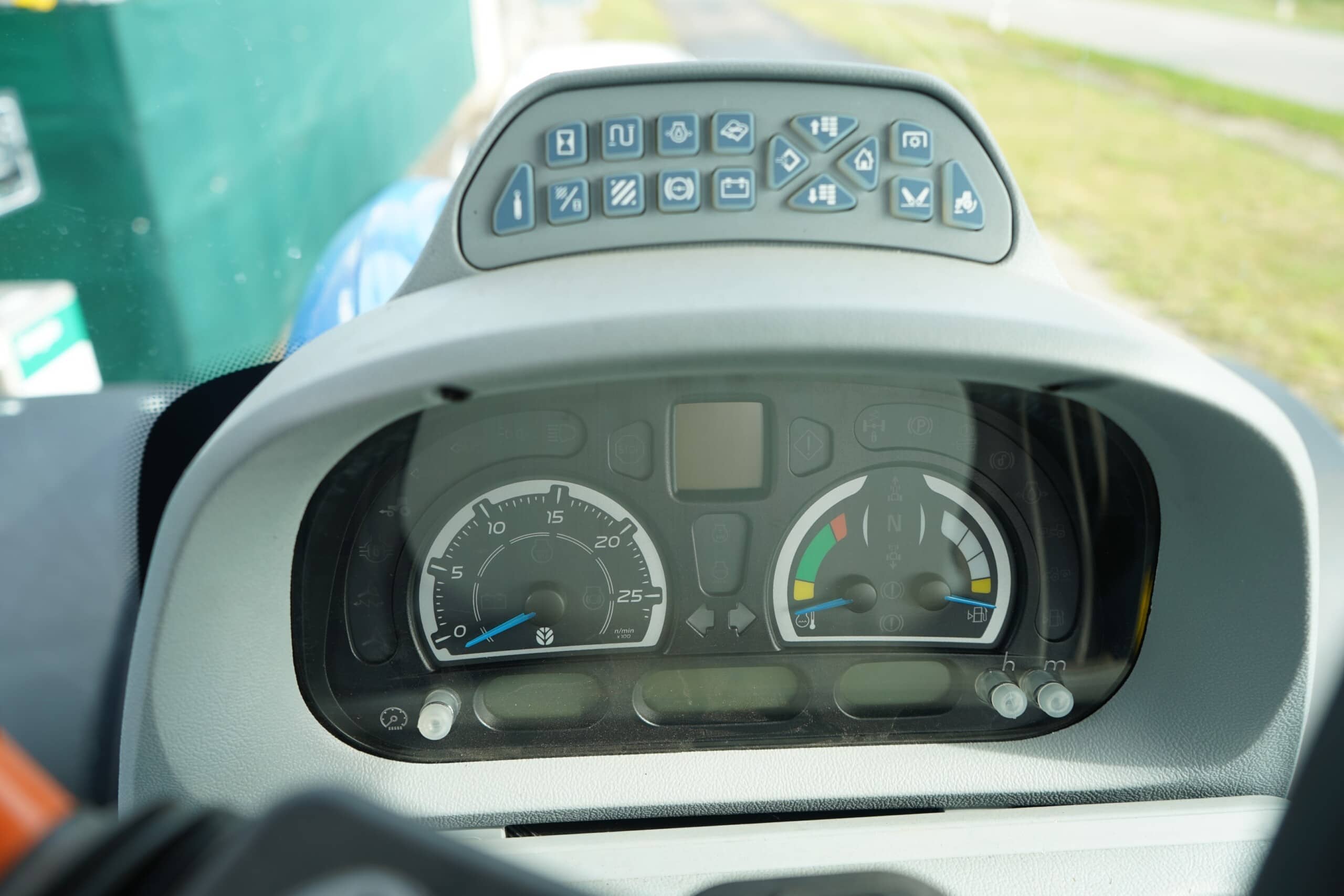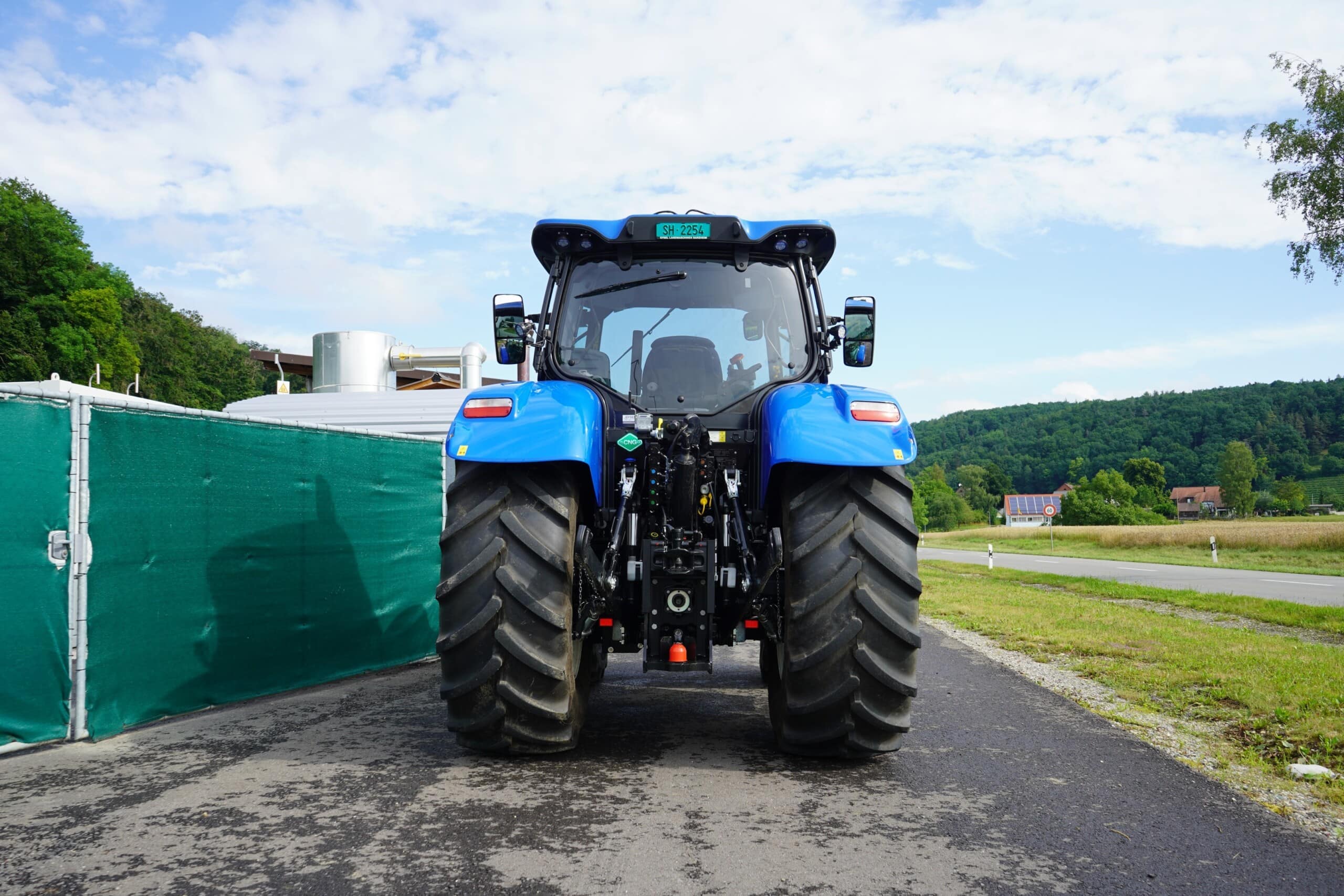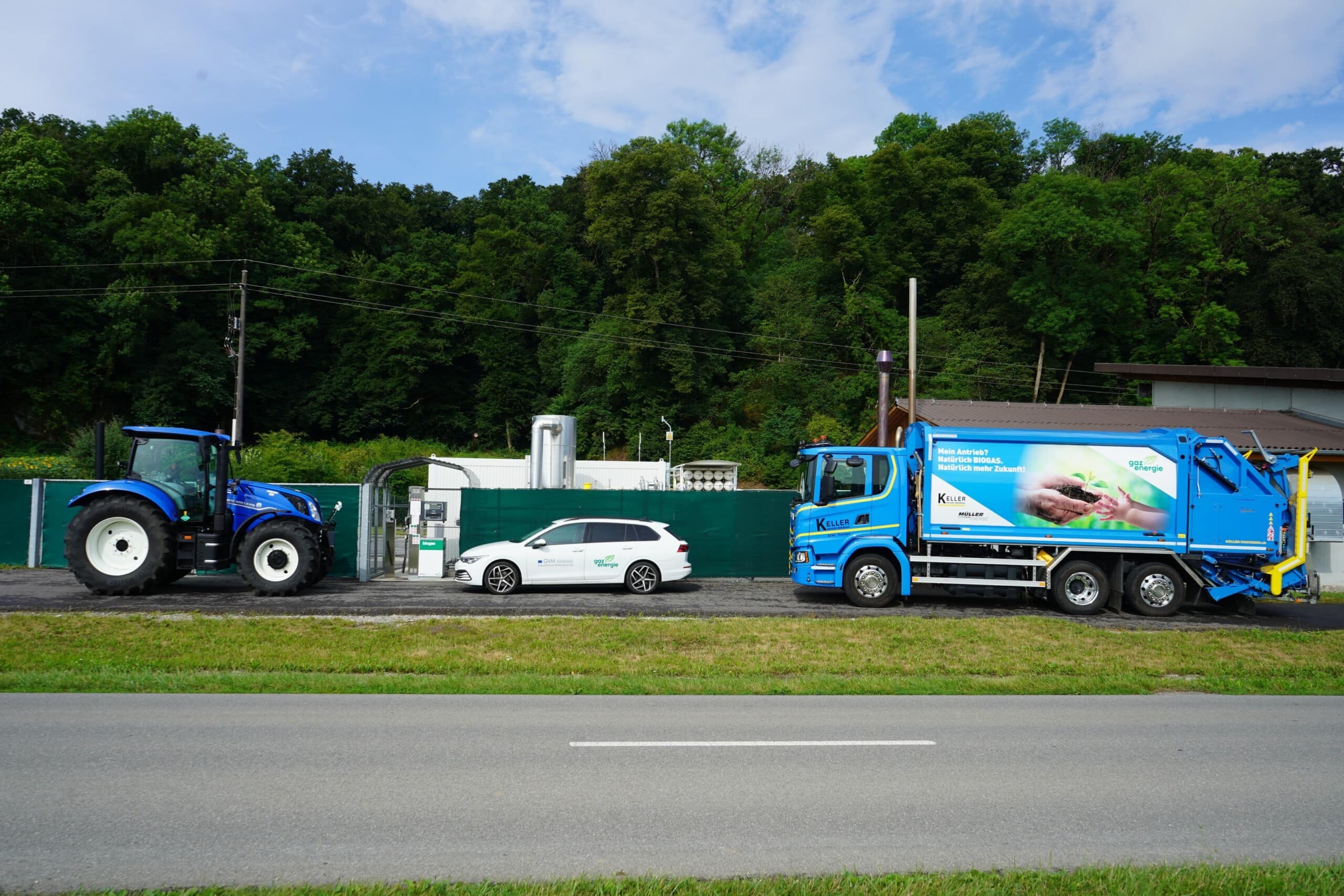Portal for more climate-friendly mobility
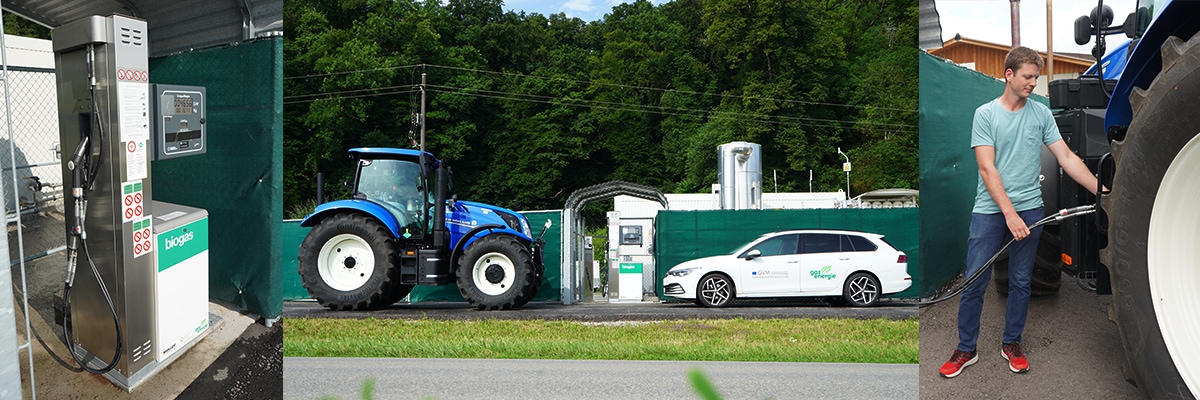
Fuel straight from the farm
The Müller family’s flagship project in Thayngen (Canton of Schaffhausen) makes it possible: thanks to biogas obtained from slurry, manure and organic residues, fuel is now available directly from the farm for the first time in Switzerland. This means material cycles can be closed even more efficiently.
Source: Oekostrom Schweiz/Müller Energie/CNG-Mobility.ch
Because biogas is renewable and CO2-neutral, CNG vehicles that fill up at the first semi-public biogas filling station on a farm are automatically climate-friendly. “With our biogas plant, we can make good use of the slurry and manure produced on our farm and organic residues from the region. We use it to generate biogas – a renewable energy source,” explains Andrea Müller. The family business can now cultivate its own fields with renewable fuel on a climate-neutral basis. This means that all of the farm’s energy needs (electricity, heat and fuel) can be met by its own renewable sources.
“We first thought about a biogas plant in 2006,” recalls Andrea Müller at the official opening of the first biogas filling station on a Swiss farm. “Back then, blackouts were not yet an issue. And we didn’t have any arguments about funding – there simply wasn’t any.” Together with her husband Christian, she pursues the vision of setting up a regional heating network and equipping their buildings with photovoltaic systems. The biogas plant was finally commissioned in 2014.
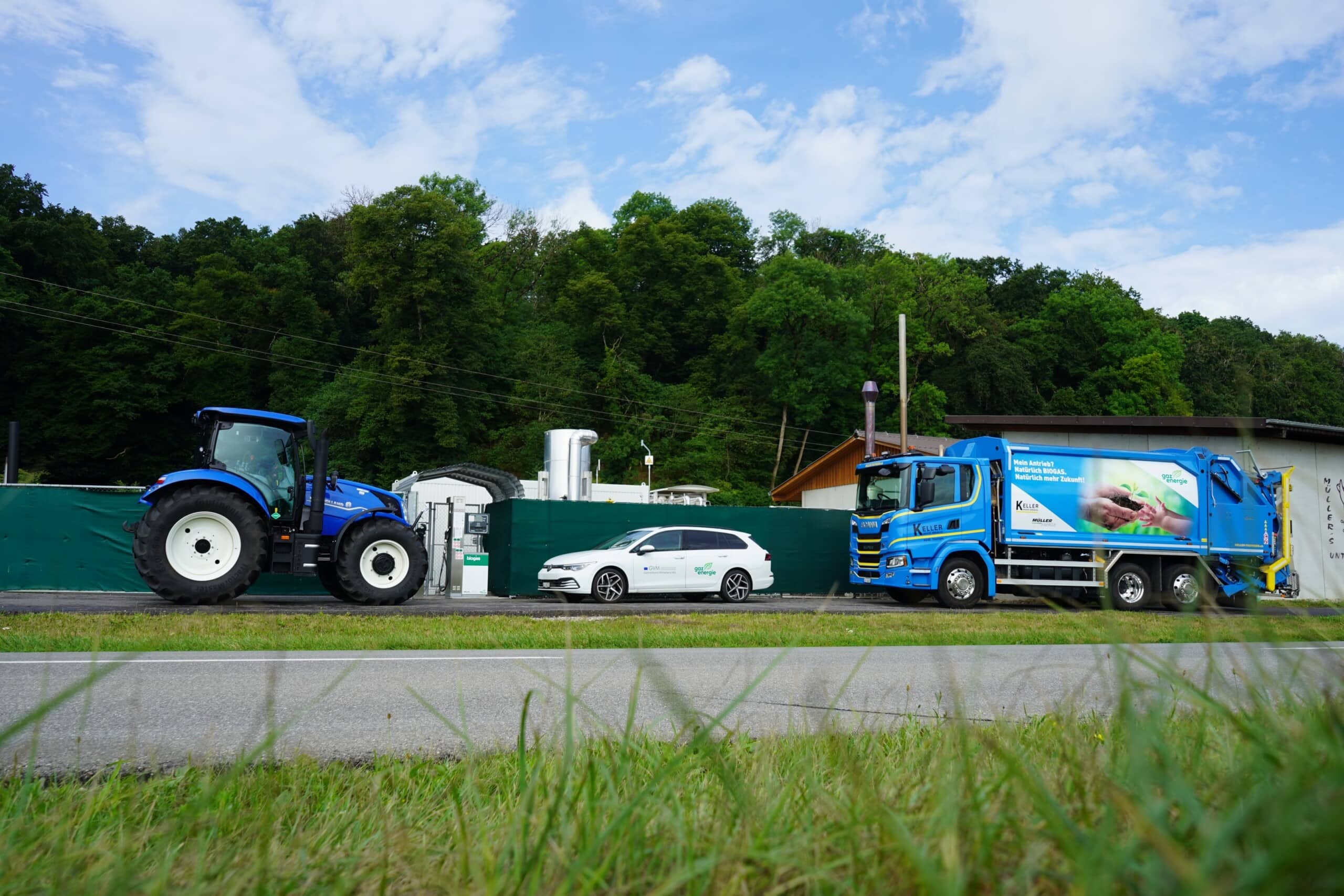 Whether it’s a tractor, passenger car or even a truck powered by CNG, at Switzerland’s first farm-owned biogas filling station in Thayn, everyone gets regionally produced fuel for climate-neutral mobility. Source: CNG-Mobility.ch
Whether it’s a tractor, passenger car or even a truck powered by CNG, at Switzerland’s first farm-owned biogas filling station in Thayn, everyone gets regionally produced fuel for climate-neutral mobility. Source: CNG-Mobility.ch
But agriculturalist and energy farmer Thayngen is critical of the procedure: “A seven-year approval process is clearly six and half years too long for such sustainable projects.” However, the Müllers didn’t give up and steadily expanded their energy network. “We currently generate electricity for 400 households with our biogas plant. It also supplies waste heat for the regional heating network, which now supplies 270 residential units, three commercial enterprises and a school building with heat for heating and hot water all year round,” explains Andrea Müller. As such, the Müller Energie GmbH agricultural biogas plant makes an important contribution to the regional, sustainable energy supply and has now been expanded to include the first biogas filling station on a farm in Switzerland. What is particularly important here is that no crops are grown for biogas production in Switzerland, not even on the Müllers’ farm. “With us, customers can fill up their vehicles with sustainable fuel that comes 100% from the region and is produced on our farm. In doing so, we’re closing the material cycle and making mobility CO2-neutral,” says Andrea Müller.
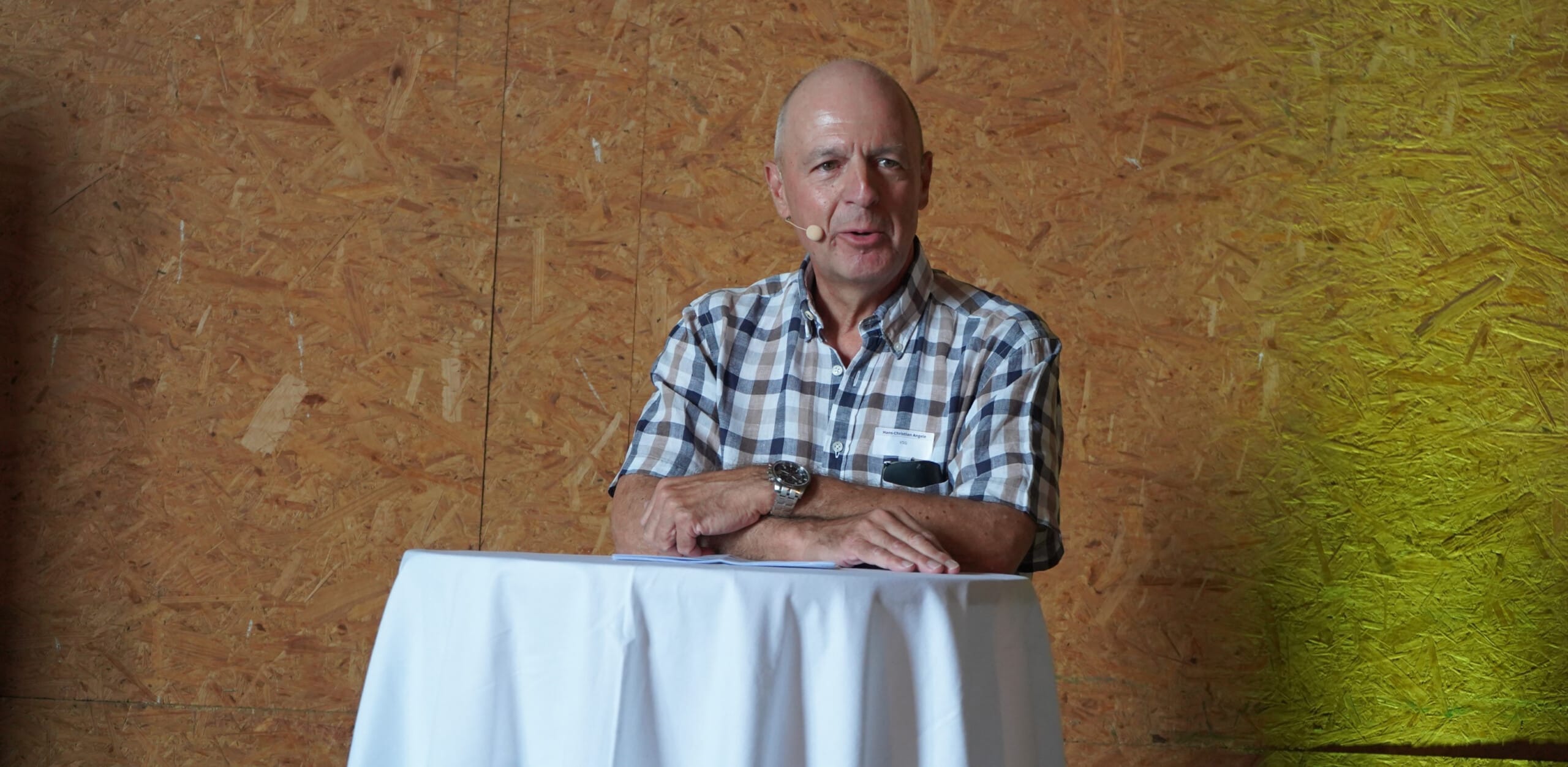 Hans-Christian Angele, Head of Policy and Member of the Executive Board at the Swiss Gas Industry Association, explains the efforts of the Swiss gas industry in decarbonization at the grand opening. Source: CNG-Mobility.ch
Hans-Christian Angele, Head of Policy and Member of the Executive Board at the Swiss Gas Industry Association, explains the efforts of the Swiss gas industry in decarbonization at the grand opening. Source: CNG-Mobility.ch
As Hans-Christian Angele says – Head of Policy and a member of the Executive Board of the Swiss Gas Industry Association: “Domestic gas production makes sense, yet it has largely been ignored by politicians to date. State subsidies focus one-sidedly on electricity production; feeding biogas into the grid is not an issue.” This makes the cost-effectiveness of the plants a challenge, even though biogas and renewable gases are crucial for the future, decarbonisation and security of supply.
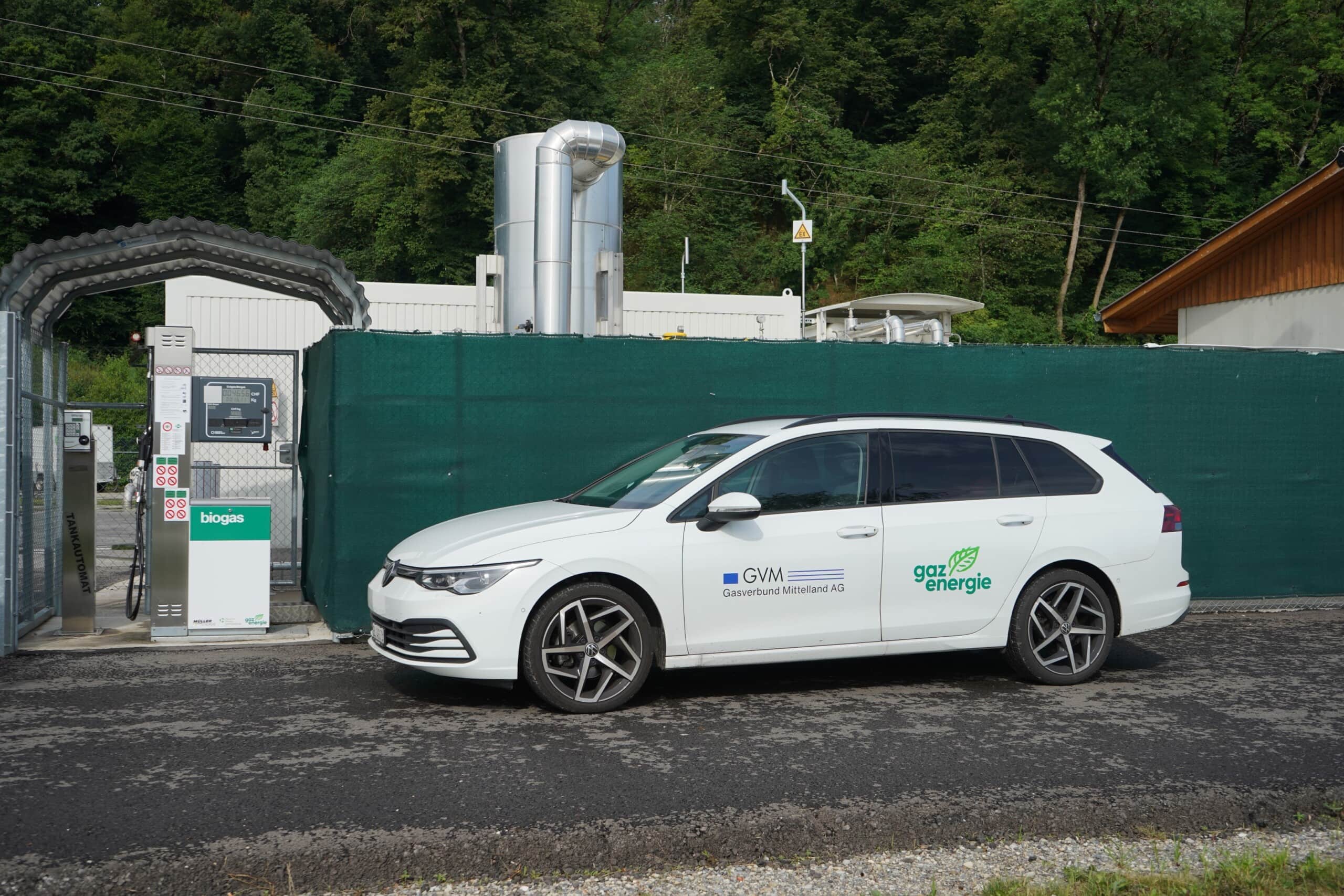 Fuel instead of milk directly from the farm, in Thayngen with the Müller family this is a reality at the first biogas filling station on a Swiss farm. Source: CNG-Mobility.ch
Fuel instead of milk directly from the farm, in Thayngen with the Müller family this is a reality at the first biogas filling station on a Swiss farm. Source: CNG-Mobility.ch
The flagship project in Thayngen is one such important step towards making our country less dependent on expensive energy imports with Swiss biogas, thus ensuring greater energy security for all and establishing regional energy cycles. The local disposal specialist, for example, takes advantage of this by using biogas to fuel its refuse collection vehicle. “The biogas processing plant with a filling station has helped to prevent around 200,000 litres of fossil diesel being emitted every year, meaning that Thayngen’s waste collection and the production of our potatoes are CO2-neutral,” explains Andrea Müller.
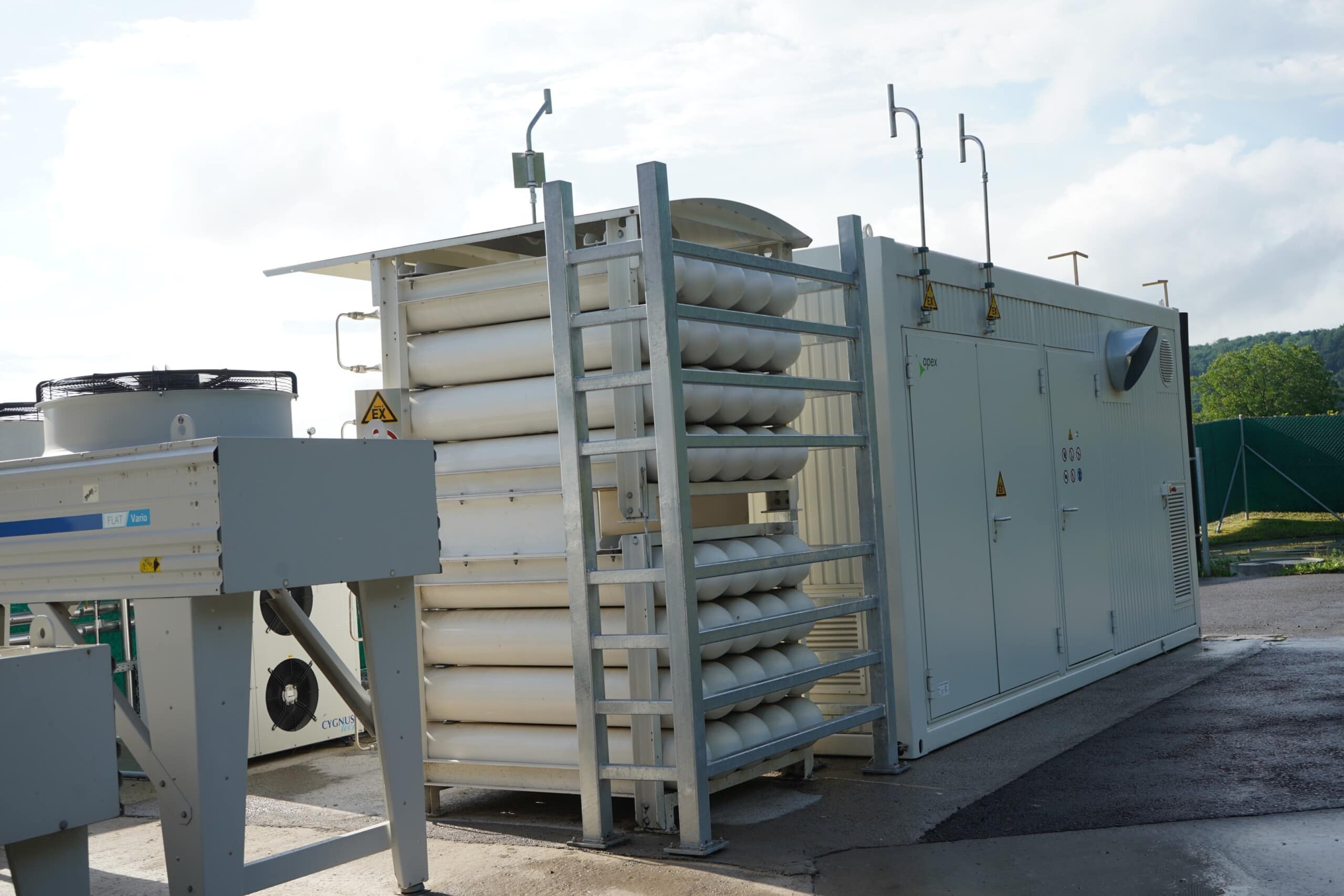 The heart of the filling station with the gas storage tank and the technology container. Source: CNG-Mobility.ch
The heart of the filling station with the gas storage tank and the technology container. Source: CNG-Mobility.ch
Stefan Mutzner, CEO of Ökostrom Schweiz, the association of agricultural biogas plant operators in Switzerland, is also certain that “filling stations at agricultural biogas plants have great potential throughout Switzerland.” “They reduce CO2 emissions on the farm itself and offer customers regionally produced fuel on the path to a sustainable and climate-friendly future.”
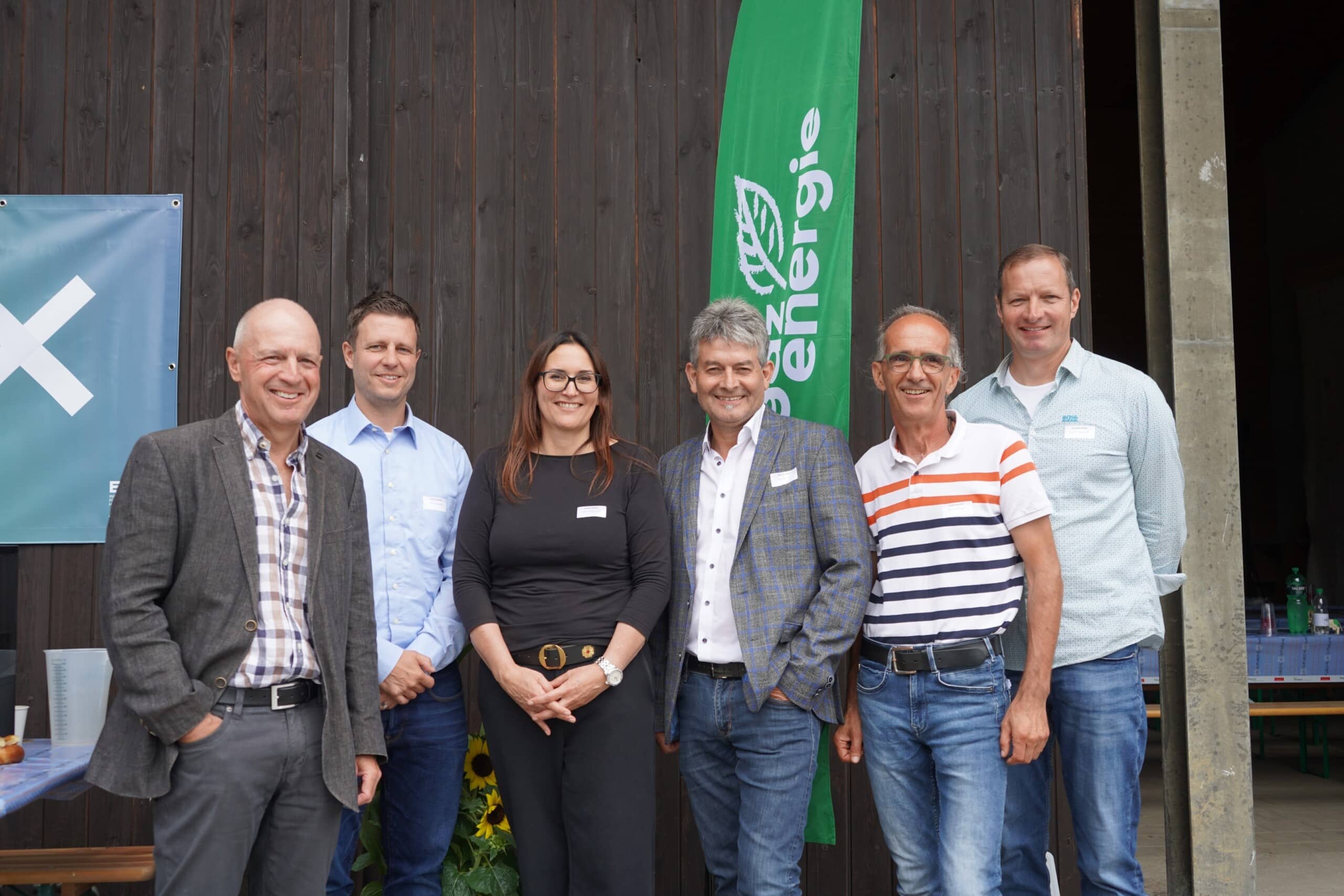 Happy about the successful opening of the lighthouse project (from left to right): Hans-Christian Angele (Head of Policy and Member of the Executive Board at the Swiss Gas Industry Association), Pascal Lenzin (CNG mobility expert and Product Manager Mobility at Energie Wasser Bern), Andrea Müller (farmer and owner Müller Energie GmbH), Martin Haab (National Councillor and President of the Zurich Farmers’ Association), Stefan Mutzner (Chairman of the Executive Board at Ökostrom Schweiz) and Christian Müller (farmer and owner Müller Energie GmbH). Source: CNG-Mobility.ch
Happy about the successful opening of the lighthouse project (from left to right): Hans-Christian Angele (Head of Policy and Member of the Executive Board at the Swiss Gas Industry Association), Pascal Lenzin (CNG mobility expert and Product Manager Mobility at Energie Wasser Bern), Andrea Müller (farmer and owner Müller Energie GmbH), Martin Haab (National Councillor and President of the Zurich Farmers’ Association), Stefan Mutzner (Chairman of the Executive Board at Ökostrom Schweiz) and Christian Müller (farmer and owner Müller Energie GmbH). Source: CNG-Mobility.ch
But it’s not just agriculture that benefits from the first biogas filling station on a Swiss farm: every CNG vehicle does. “Thanks to biogas and liquefied bio-LNG, diesel trucks can now be replaced – without any loss in payload and range. This will lead to a reduction of around 100 tonnes of CO2 per vehicle used,” explains Pascal Lenzin, CNG mobility expert and Product Manager Mobility at Energie Wasser Bern. “For transport and mobility, it’s not the type of engine that matters: the concept that is selected – such as biogas – has to be renewable.” If emissions are not measured at the exhaust pipe, but calculated over the entire life cycle of the vehicle, CNG vehicles – whether tractors, HGVs or passenger cars – with biogas in the tank are even on an equal footing with electric vehicles that fill up with renewable electricity. (pd/jas, 30 June 2022)
You might also be interested in
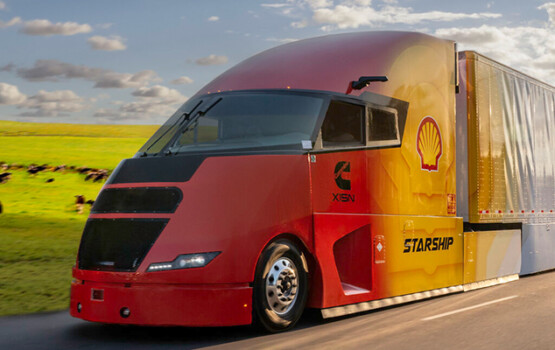
Shell Starship on record hunt
